1,692 DAYS – FOUR YEARS + 7 MONTHS + 18 DAYS
since Thistle’s mismanaged Major Works Programme started on 7th January 2016
1,364 DAYS – THREE YEARS + 8 MONTHS + 26 DAYS
since 30th November 2016 when “all of the works to all of the houses in Toryglen will be complete“. Today, Tuesday 25th August 2020, still incomplete, work proven to be shoddy and more importantly, dangerous and now possibly hazardous to life and limb with millions of pounds required for rectification work. Thistle Housing has hardly lifted a finger to rectify their misdeeds


Brenda Wilson, the long term member of Thistle Housing’s Management Committee, recently resigned, together with her equally long term sidekick, Patrick Cannon. See more of Mrs Wilson’s comments here.
This blog post is as a result of Mrs Wilson’s comments openly published on multiple sites (see here & here ) as well as the Glasgow Times (see here), in previous posts on this site (see here & here), available for all interested parties to see.
The National newspaper recently published an article detailing the severe and many shortfalls of the Scottish Housing Regulator. If you read it here, it gives the impression, if not the fact, that the entire housing association trick is nothing short of a multimillion pound scam to feed the greed of so-called consultants who prey on failed housing associations. Again, Mrs Wilson has her say in that too.
The National runs a paywall. If you are having problems accessing the National article, the full text is at the very end of this post.
You might like to click here to go back almost two years to Thistle’s AGM on 26 September 2018, when questions were asked and either received lying answers or just ignored.
Mrs Wilson states, “There is not one report, piece of paper or email left from the time of that first statutory manager. He was in place for nearly 10 months, and for all that time the Association paid his daily rate, weekly travel costs from Devon and living costs in Glasgow. The overall cost must have been well over £120,000 with, as far as we can see, little or nothing to show for it“.
Mrs Wilson, who certainly took her time in seeing the light of day in Thistle, now reveals that all papers, documents, reports, emails, email accounts – well, everything accrued during the tenure of the Regulator’s first Statutory Manager, has all vanished. Gone. Disappeared.
Mrs Wilson complains, “the first statutory manager arrived in August 2018 he carried out an intense further investigation of the Association“.
After two years of the Scottish Housing Regulator’s investigation of Thistle Housing, questions have to be asked:
* Where are the results of the first Statutory Manager’s “intense further investigation of the Association“?
* Where are all the documents, investigations, paperwork, email traffic and accounts?
* Who made it all disappear and why?
* What has Thistle Housing achieved for the £120,000 of Toryglen residents’ money Mrs Wilson tells us was spent on the now vanished efforts of the Regulator’s first Statutory Manager?
* Why is it always up to Toryglen residents to uncover wrongdoings in Thistle?
* Why is Thistle’s failed management so secretive?
* Why has the Scottish Housing Regulator not flagged up this situation previously?
* Why have Thistle’s senior management not been questioned about the vanished documentation and why has appropriate action not been taken and seen to be taken?
Whilst the disgraced Director, Mrs McColgan, has gone (no doubt with a hefty ‘severance’ package, as has the previous Interim Director, Bob McGuire, who expensively produced little and published nothing, there is now the question of apparently missing hundreds of thousands of pounds and, at the same time, the disappeared Finance Manager, Jim Naismith who vanished two months ago without explanation and Thistle’s subsequent refusal to explain why although Mr Naismith has now been replaced by a Sanctuary employee before any prospective takeover has been agreed by Toryglen residents and Thistle shareholders.
Mrs Wilson continues, “We know that there were a lot of problems arising from how the big contract with Eon was managed. I know we all got some things wrong, including just not having enough of the right staff to manage a major contract.`”
Too right but she was part of the Thistle cabal who, as Mrs Wilson states, “all knew that there were a lot of problems“, who either lied to Toryglen residents who asked questions or, more often, simply ignored said questions, the latter being a tactic now apparently being adopted by the prospective takeover partner, Sanctuary.
So, why did Thistle not have the right staff? They were certainly forking out hundreds of thousands of pounds in salary payments to those senior staff who were responsible for the Major Works Programme as well as huge payments to Jeff Poulter, the heating engineer, who claimed to be a Clerk of Works (and wasn’t) as well as the costs to retain the other self proclaimed Clerk of Works, Paul Nolan, a painter, both of these laughingly termed Clerks of Works being as useful as a hole in a fish tank. Why, when it was so blindingly obvious to Toryglen residents that these two jokers were useless idiots, did Thistle’s overpaid and responsibility free senior management allow them free range to literally destroy residents’ homes?
It has been admitted by the Regulator’s managers that they were horrified at the record keeping in Thistle whereby they stumbled, quite literally, over boxes and boxes of miscellaneous letters and documents, in no order. It has since been discovered that much of this paperwork, including that of the disgraced and booted Director, Mrs McColgan, were shredded by two senior members of staff. Additionally, it has been revealed that email accounts and all of their associated traffic have been deleted from Thistle’s email server, all without explanation or response to questions.
Why has all of this evidence been hidden, shredded. deleted and destroyed and why are those senior members of staff who undertook this heinous act still on Thistle’s payroll?
Has the Regulator discussed the situation of missing documentation with the first Statutory Manager?
Why has the Regulator, seemingly, taken part in this conspiracy and why, given that all members of the Management Committee are the Regulator’s placemen, done nothing to resolve this impasse? Why has the Regulator not revealed these acts?

Mrs Wilson states that she resigned from Thistle’s Management Committee as there has been no benefit from the £500,000 spent on so-called investigations. Added to this, there will be a bill from the Scottish Housing Regulator for its two years and more involvement in Thistle, the thick end of £1 million has gone up in a puff of smoke. Just imagine what £1,000,000 could have done for the people of Toryglen. But no, it’s wasted, it’s not Thistle senior managers’ money, not one of them stays in Toryglen as neither do the majority of staff so really, why the hell should they bother?
In the vernacular, ‘if it smells of shite, it is shite’ and all of this certainly stinks to high heaven and reeks of a deliberate coverup.
But covering up what? When simple questions have been asked principally of the failed Major Works Programme but also of many other issues affecting Toryglen residents, and dating back to October 2016 but never answered, when all other possible explanations have been considered and rejected, the only one left is that there has been graft and corruption within Thistle Housing. There is simply no other alternative.
There is certainly something seriously wrong with the way Thistle Housing’s senior management have shirked all responsibility for their profligate spending of Toryglen residents’ money and accepted no blame, at all, for their mismanagement over not just the last four years but, as it turns out, for their entire nineteen years in Toryglen.
As a consequence, the Scottish Housing Regulator has now been requested to refer the sordid and rather sleazy behaviour of Thistle Housing to Police Scotland and the Procurator Fiscal to examine the possibility of criminality.
The text of the National Article
IS Glasgow in danger of losing its hard-won status as the community-led housing capital of Britain?
A series of heavy-handed investigations by the Scottish Housing Regulator (SHR) has resulted in the departure of key staff and long-serving local committee members from some of Scotland’s best-performing Housing Associations (HAs) and racked up six-figure consultants’ bills to be met by Glasgow’s poorest tenants. As one HA manager put it: “Hundreds of thousands of pounds are being spent on usually fatuous, unnecessary enquiries and investigations instructed by SHR, carried out by ridiculously expensive consultants … and paid for by tenants, amongst the poorest in society.”
All of which might be fair enough if the investigations uncovered evidence of shocking malpractice, woeful mismanagement or sky-high rents. But generally speaking, they haven’t.
Twelve Housing Associations have had intensive SHR involvement in the last five years and all are community-led organisations, prompting the suspicion that the regulator has a mission to professionalise the unique tenant-led associations that exist in Glasgow and beyond.
One SHR intervention began in 2017 when allegations prompted the suspension of an HA director and a nine-month investigation. After he was able to present evidence in his own defence, the regulator (via HA solicitors) offered him one year’s net salary for “loss of office”. The SHR refused to deal with him directly, key members of the volunteer committee resigned and now the majority are “parachuted in” regulator appointees. The bill for intervention by London-based consultants is estimated, by the regulator, to be over £100k.
The former director, who has 40 years involvement with the housing movement and wants to remain anonymous, said: “In my final years in charge, we had some of the lowest rents, lowest rent increases, best and quickest repairs, most professional care services and highest levels of tenant satisfaction in Scotland. There were no risks of any significance, but tenants must pay the price of regulator intervention. Our tenants did not need protection by the SHR, they needed protection from it.”
Another community-led Glasgow-based HA spent two years trying to comply with an “over-exacting” SHR. Their director also wants to remain anonymous and said: “We were looking to refinance and needed consent from SHR. At their insistence we commissioned a consultant to carry out a governance review who rated our performance as good. SHR wouldn’t accept that consultant’s report and wouldn’t explain why. The issue has gone backwards and forwards with slow responses from them. Eventually they stated there was ‘material non-compliance’ to regulatory standards but wouldn’t give details. Then the Covid lockdown kicked in, and now we’re stuck. We’ve spent £100k on regulation over the last two years – money that could have been spent on new kitchens. We feel there’s a desire to professionalise committees – to have accountants and lawyers. We see that as unhealthy because with unfamiliar ‘experts’ present, there’s a danger governance gets deferred to them. It seems local people aren’t trusted any more.”
Yet another Glasgow-based HA director told me: “If you look at our engagement plan on the SHR website, you’d think our Housing Association is a basket case. But amongst 150 RSLs (Registered Social Landlords) we have some of the lowest rents, lowest costs per unit, no debt, 96% tenant satisfaction and we met energy-efficient standards a year early. Still the SHR criticised us for ‘widespread failures’.”
Bizarrely, it was complying with SHR guidelines that first brought them to the regulator’s attention: “They queried our relatively high number of new committee members. But we did that because SHR had urged HAs not to have folk on committees for life.”
Not surprisingly, these disputes finally bubbled into the public domain.
In January 2020, an editorial in the specialist Scottish Housing News talked of “considerable disquiet” within the sector and “heavy-handed interventions” by SHR staff with “one common theme: bullying”. The paper reported allegations that “the style of work employed by the SHR is aggressive, over the top and frightening”.
BRUCE Forbes, director of Angus Housing Association for 24 years, told Scottish Housing News upon his retirement: “The SHR is tearing apart some housing associations for relatively minor errors or indiscretions that could’ve easily been resolved by constructive dialogue.”
In February, a Freedom of Information request was lodged which found that only one in 12 of the decisions to take statutory action in HAs had been sanctioned by the SHR board. The rest were taken by regulator staff.
In April, SNP MSP James Dornan, convener of Holyrood’s Local Government and Communities Committee, wrote to George Walker, chair of the SHR, asking how the organisation audits the impact of inspections on RSLs and tenants. Around the same time, the Scottish and Glasgow Federations of Housing Associations started consultations, prompted by complaints about the SHR by their members.
So what’s happening?
All the Housing Associations under investigation are small, hyper-local and community-led, with “volunteer” boards composed of local tenants rather than lawyers, accountants and professionals who live elsewhere. Some think there’s an agenda to encourage mergers in the (unproven) belief that big is beautiful and to install more middle-class professionals in place of savvy, local, working-class volunteer committee members.
Others think a big factor was the chill that went through the whole sector after the 2008 banking crash when the SHR was created. That context could have prompted an over-zealousness by regulator staff who, according to HA directors, also lack management experience in the sector. The regulator disputes this, saying “a number of staff have direct experience of working in social landlords as officers and board members”.
MORE ARTICLES
Nonetheless, it seems ironic that small, volunteer-led RSLs must comply with every aspect of 90 regulatory requirements, while the SHR itself is exempt from the more exacting standards expected of larger regulatory organisations, because of the “small body” provisions of the Code of Audit Practice.
Still, there’s no denying the Regulator has uncovered some big problems. At Ferguslie Park HA, £533k was paid to staff in severance payments. As a neighbouring housing director put it: “Staff had gripes and instead of dealing with them, the HA decided to pay them off. The SHR had its fingers burnt. But problems like that are few and far between.”
It’s true, too, that some local residents have gripes with HA performance. When Brenda Wilson, a former committee member of Glasgow’s Thistle Housing Association, revealed £500k had been spent on fees for SHR-approved consultants (money that must be found by tenants), the Toryglen Residents’ Blog was instead outraged that Thistle’s improvement work on local houses is still ongoing, despite a promised completion date of 2016.
READ MORE: Ministers to fast-track crackdown on Airbnb-style short-term lets
THE SHR says organisations which need interventions have, “complex, significant and deep-rooted weaknesses, a failure of leadership”, and workplace cultures which left them “vulnerable to poor behaviours and incompetence”. It says board approval is only needed when a landlord’s homes might be transferred to another RSL and intervention is used “as a last resort, when there has been significant failure by a landlord … to protect the interests of tenants”.
SHR was unable to give a total cost for their interventions but referred to individual reports, one of which put the cost of an external manager for 15 months at £118,722.15 excluding VAT, adding: “These costs were partly offset by wider savings in staffing levels and substantial improvements in performance.”
Housing Association directors argue that complex, time-consuming engagements with the regulator demand vast amounts of staff time.
The SHR says the vast majority of engagements with the 186 social landlords it regulates are “positive and constructive”, and cites the following quote from Gordon Laurie, chair of Dalmuir Park Housing Association: “Dalmuir Park has been transformed since the regulator’s intervention. The expertise and knowledge of the statutory manager and appointees have been invaluable. By supporting the committed, locally elected members and a talented, enthusiastic staff team, real and lasting improvements in governance, performance and financial viability have been achieved.”
One housing sector – two very different accounts of SHR intervention.
So, what’s the solution?
Even the SHR’s fiercest critics believe a regulator is necessary and few argue for “regime change” as the first option.
Instead Housing Associations want the SHR to trust the general capacity of community-led housing associations, recruit folk with operational experience of running RSLs and start with quiet words of helpful advice instead of expensive interventions.
Would that be so difficult?












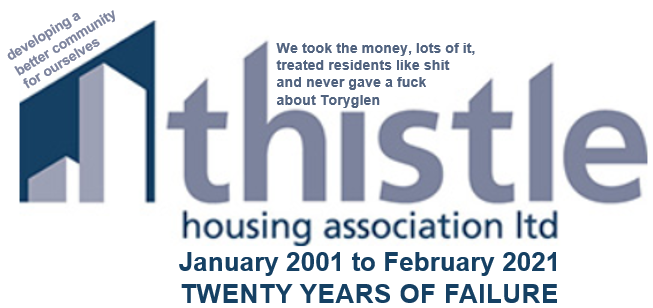
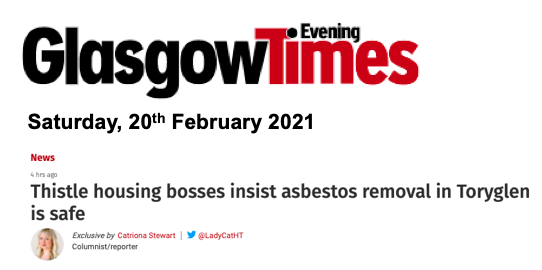

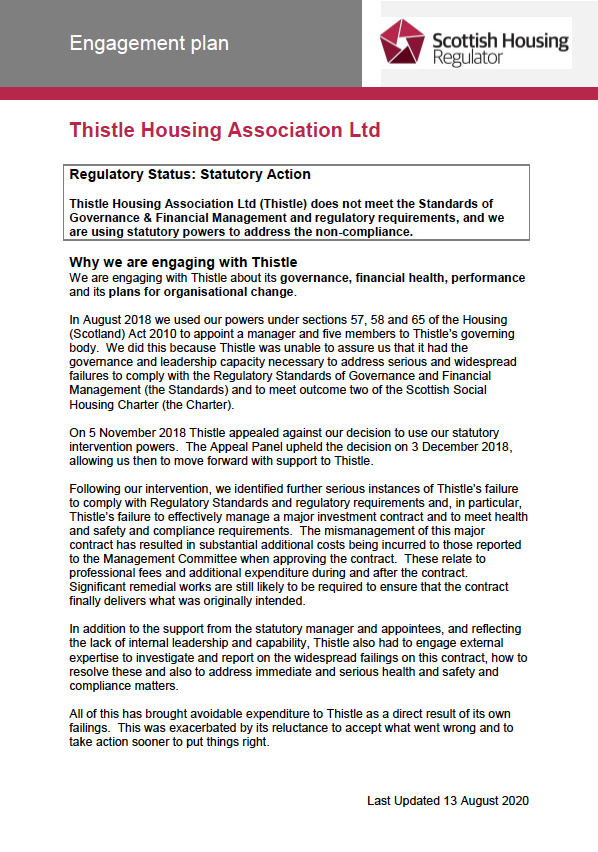
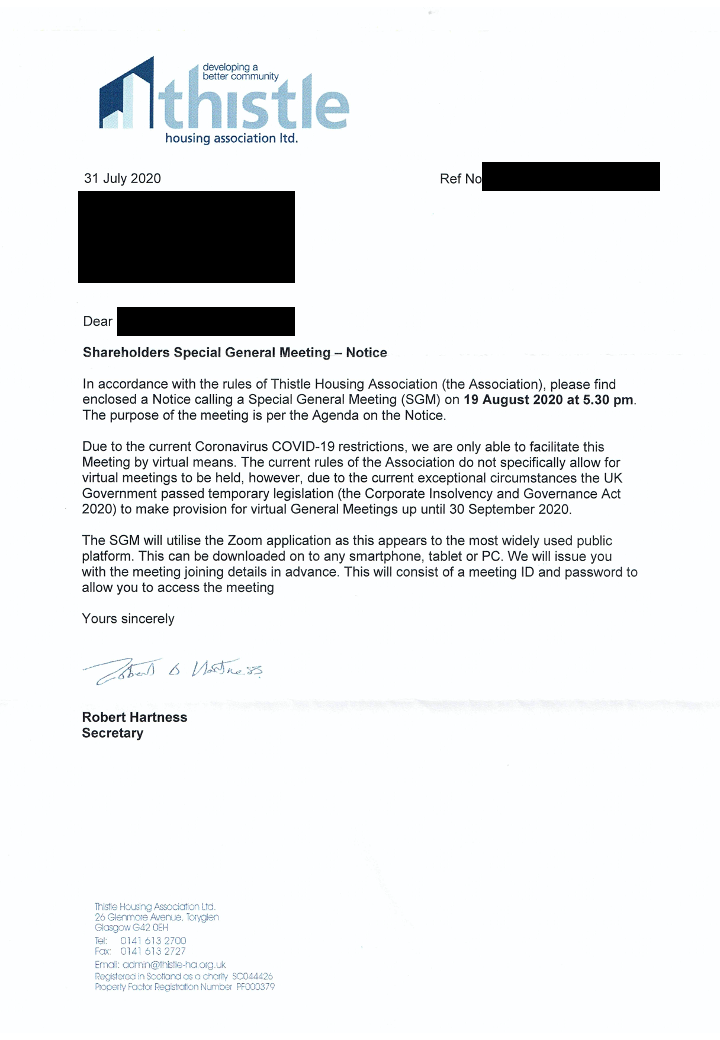
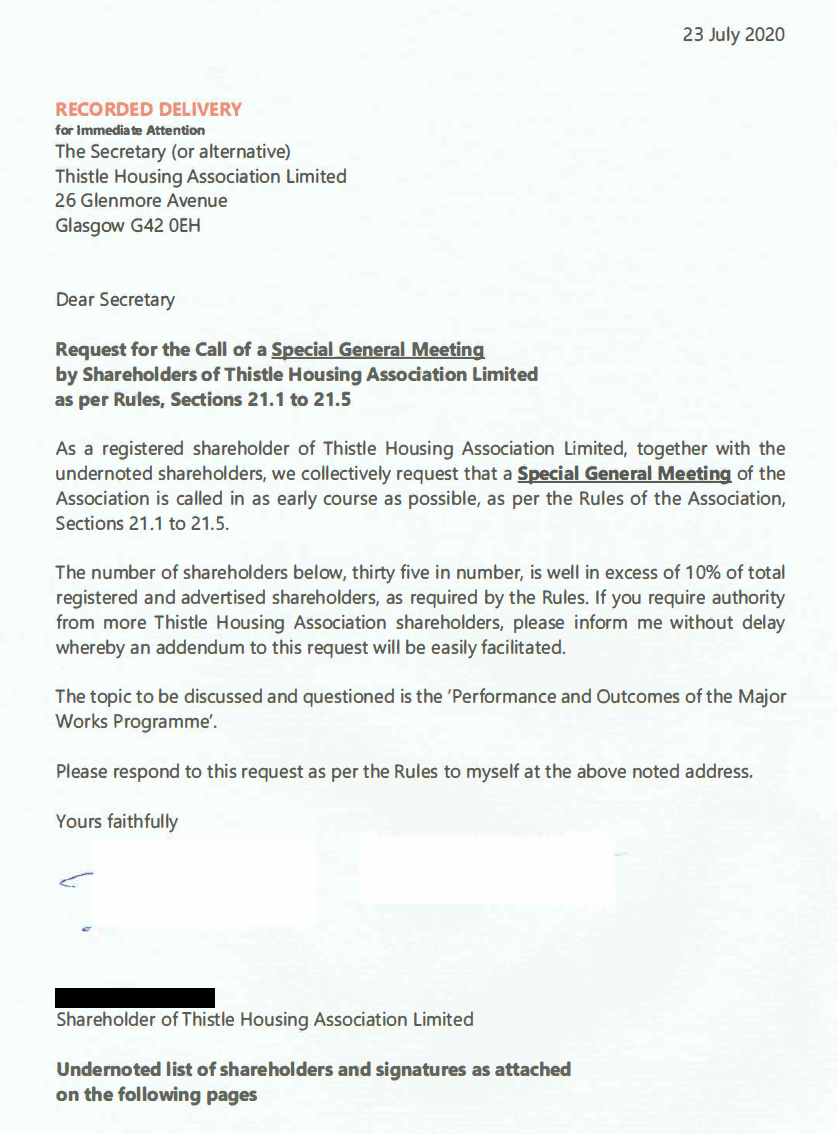

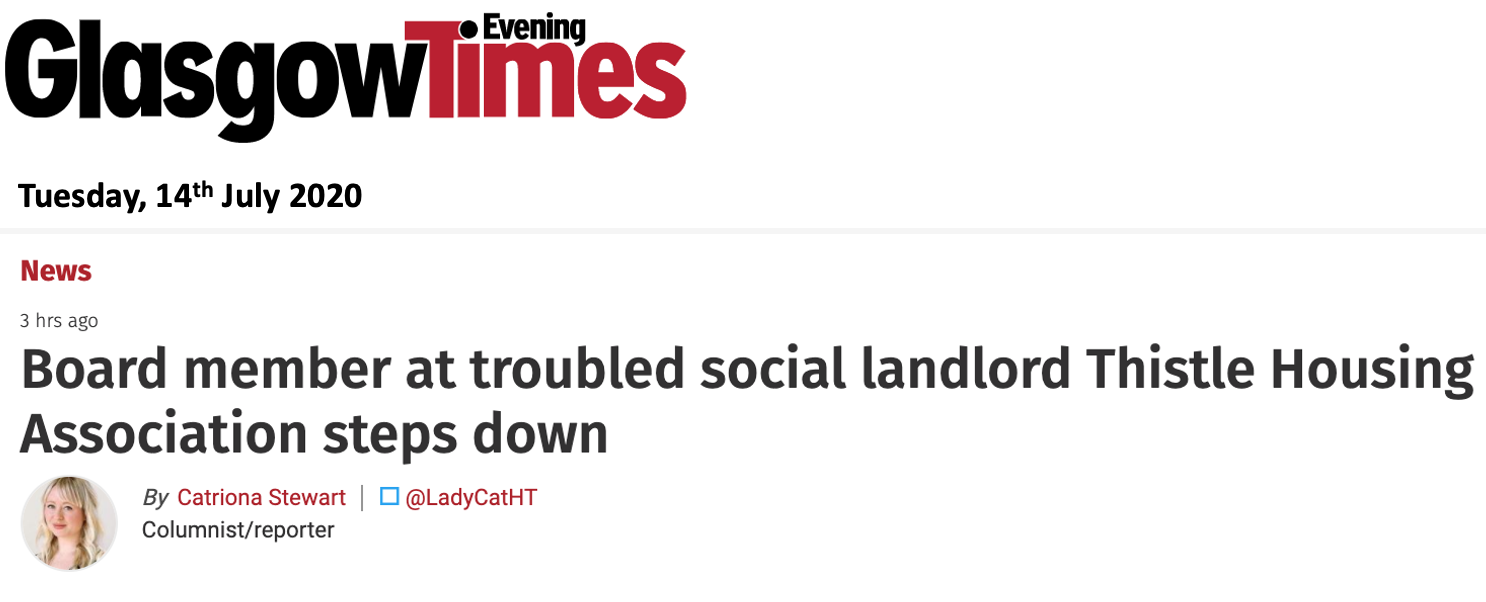




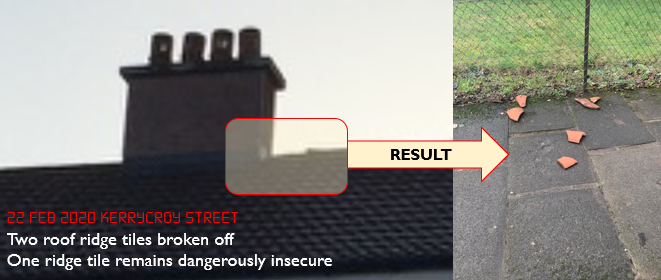


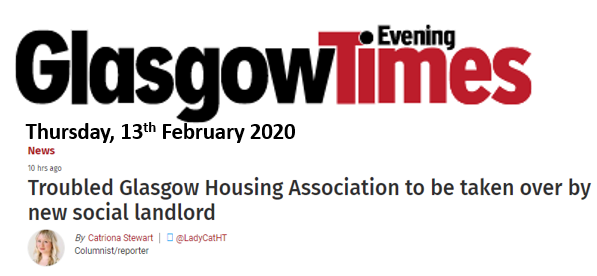


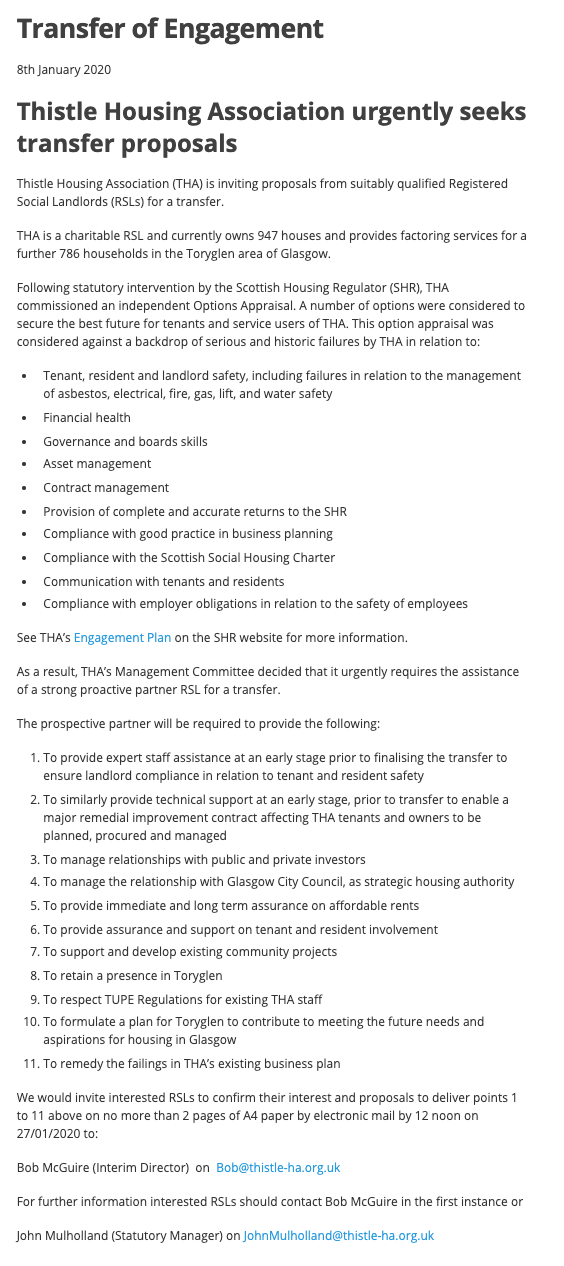


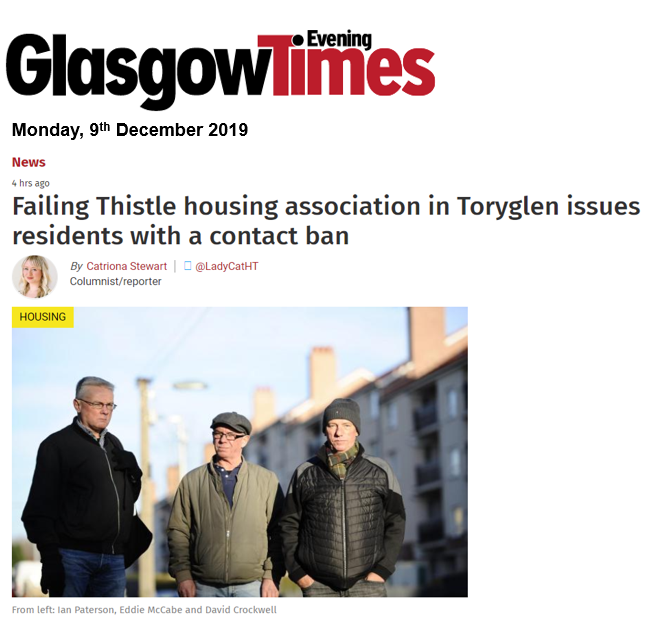
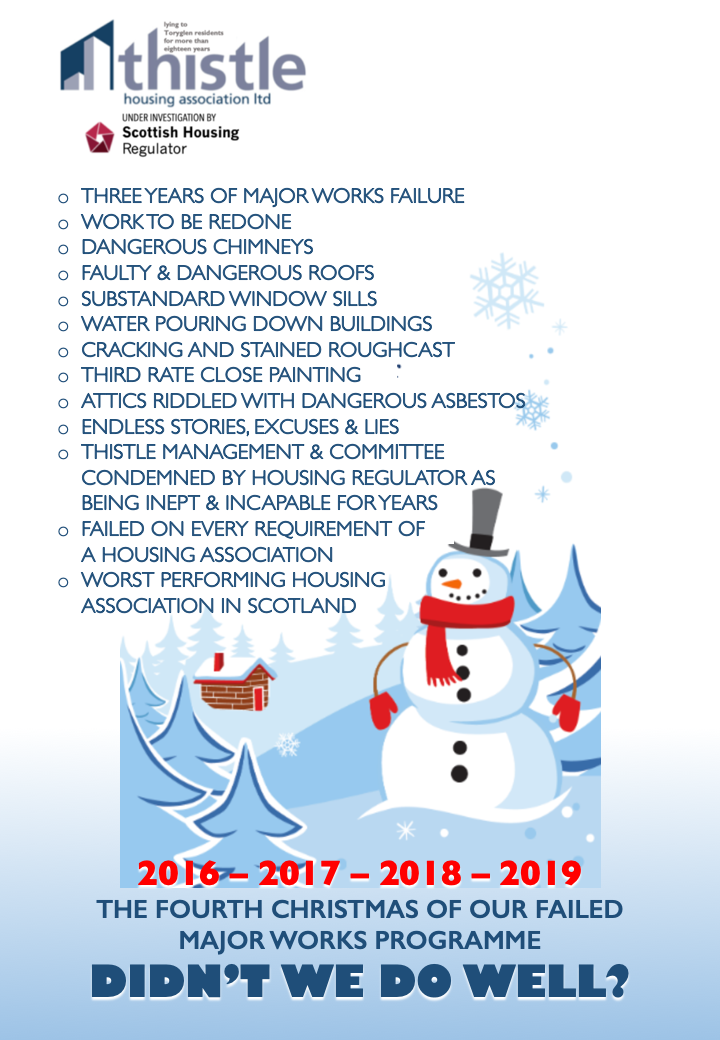
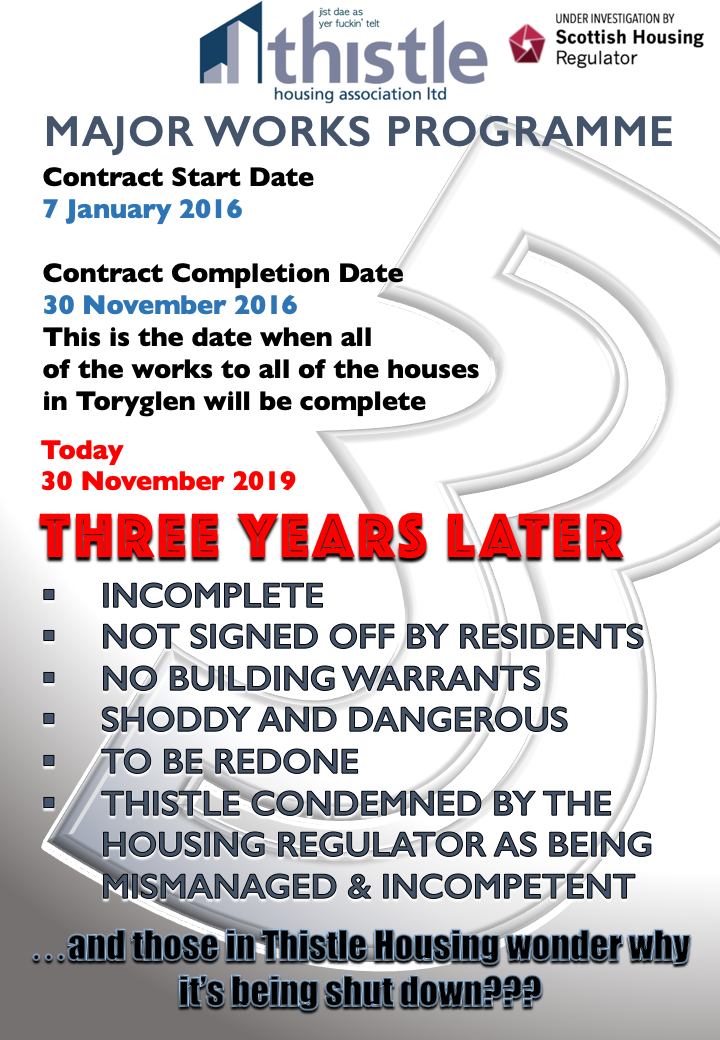
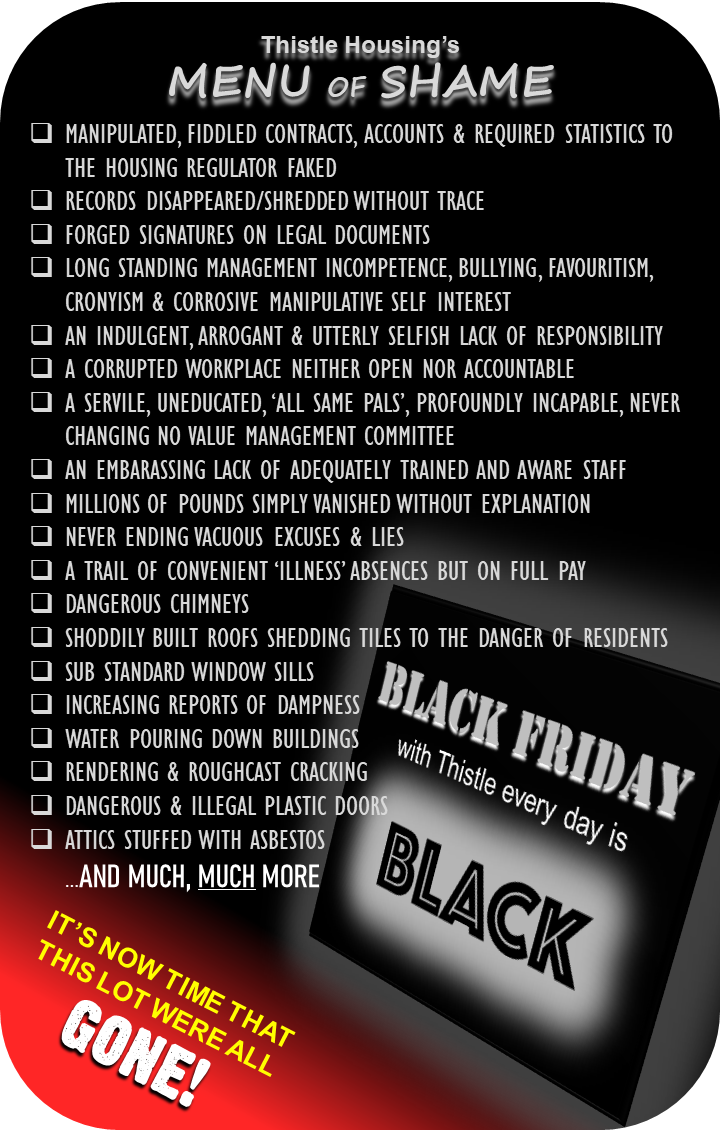



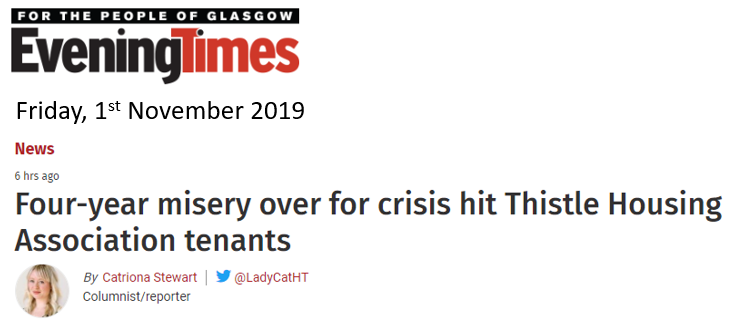

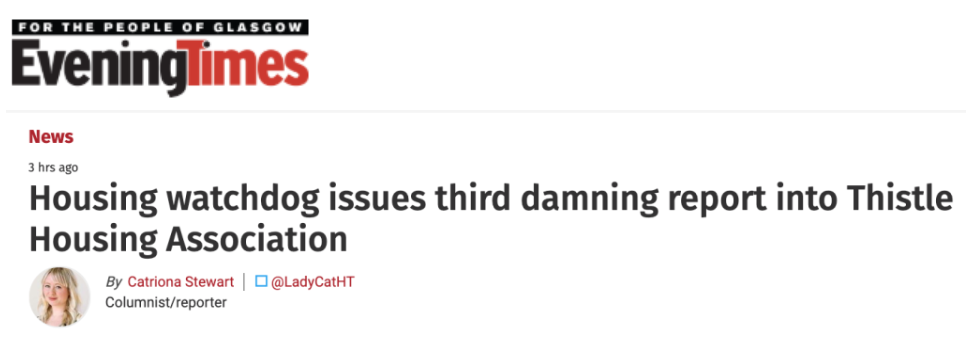

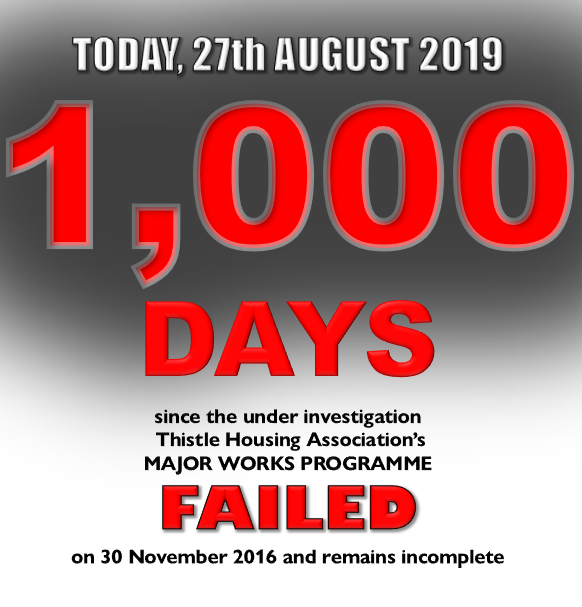
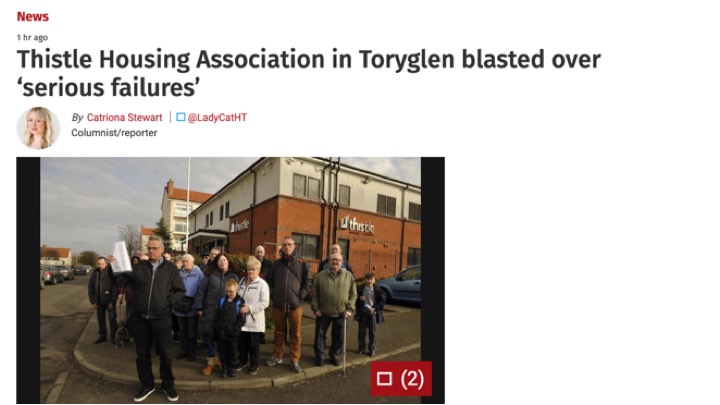

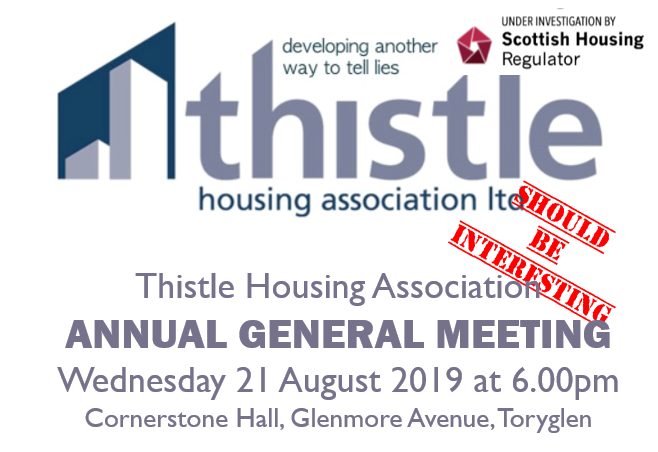

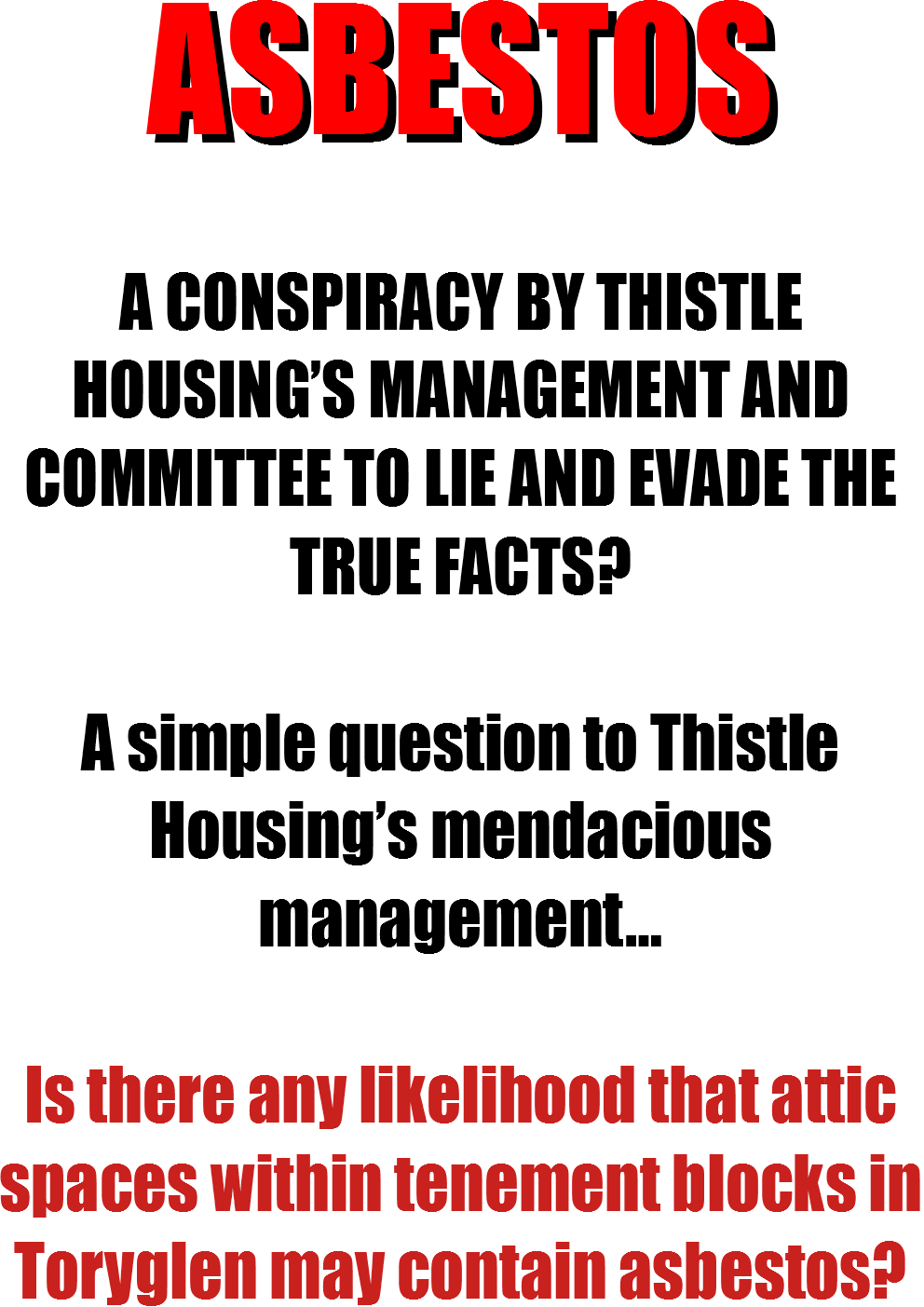



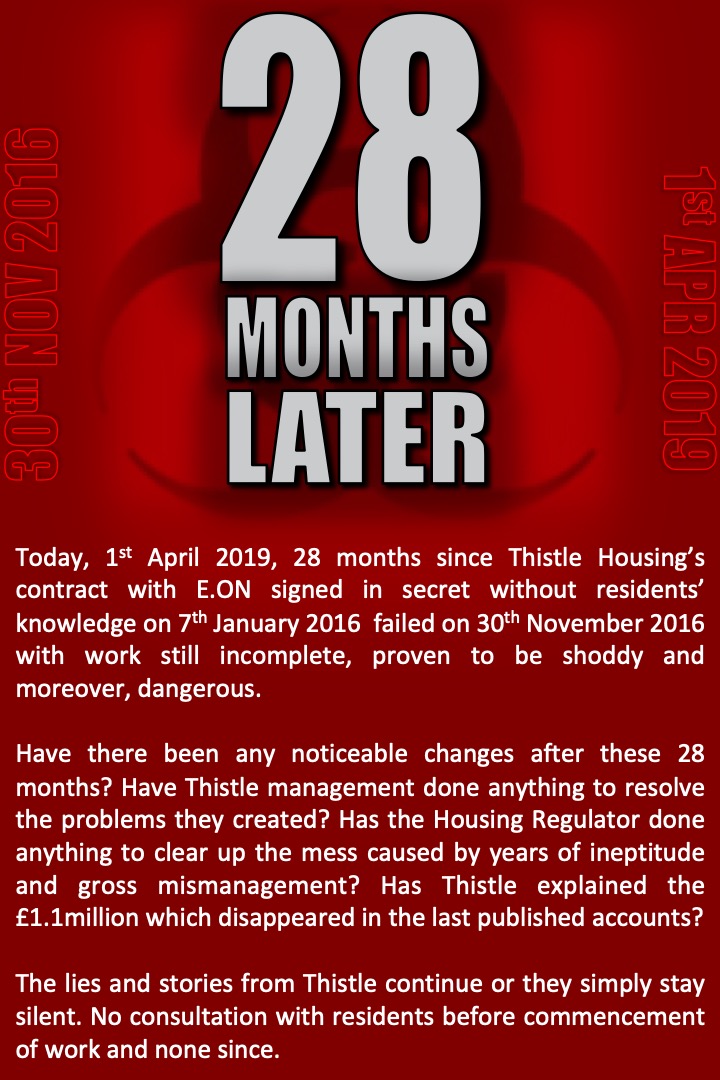

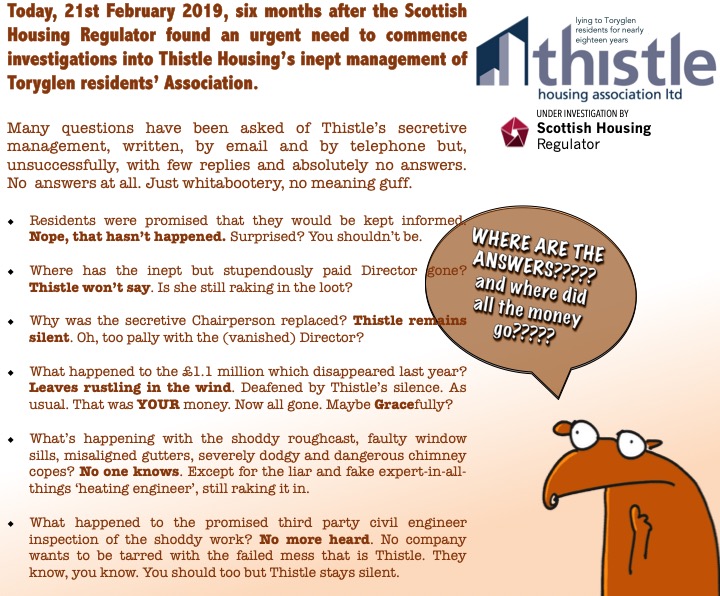
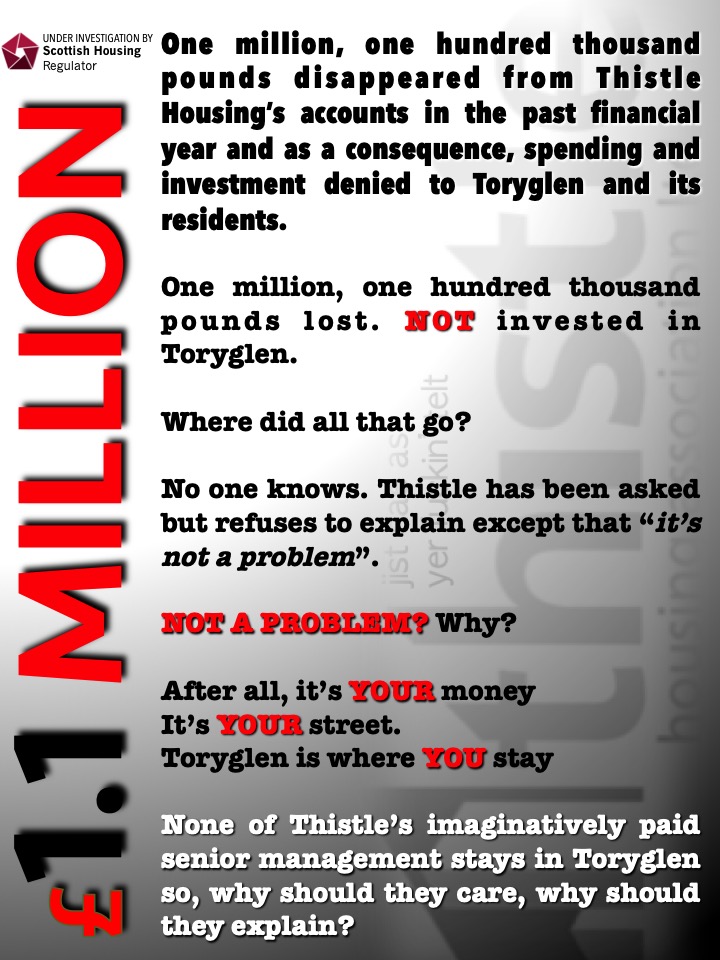
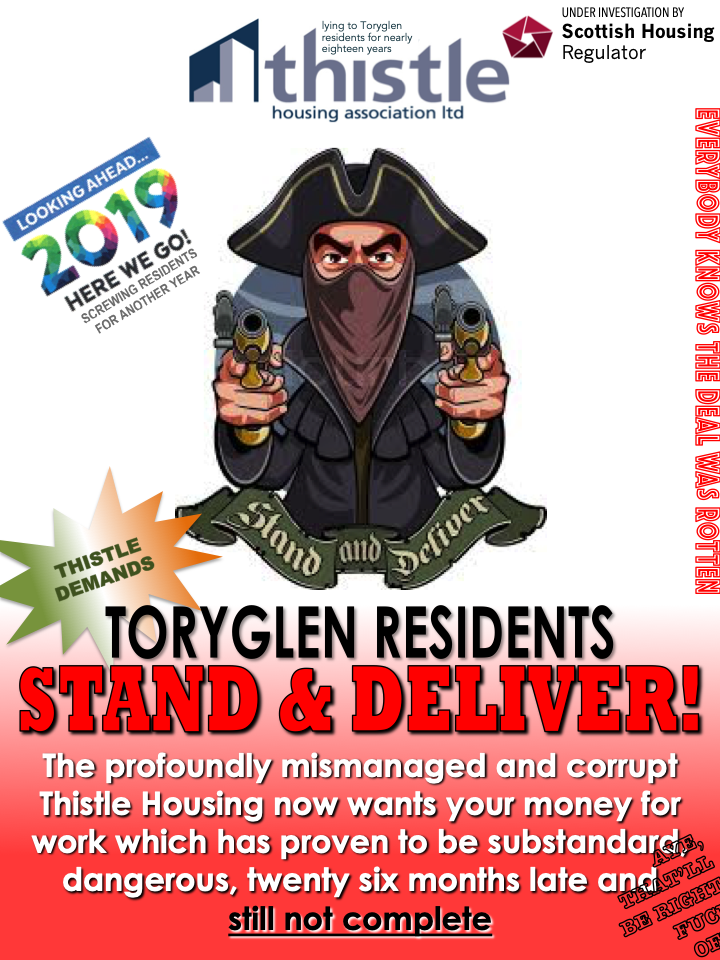
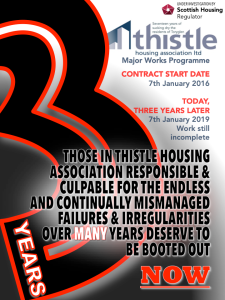


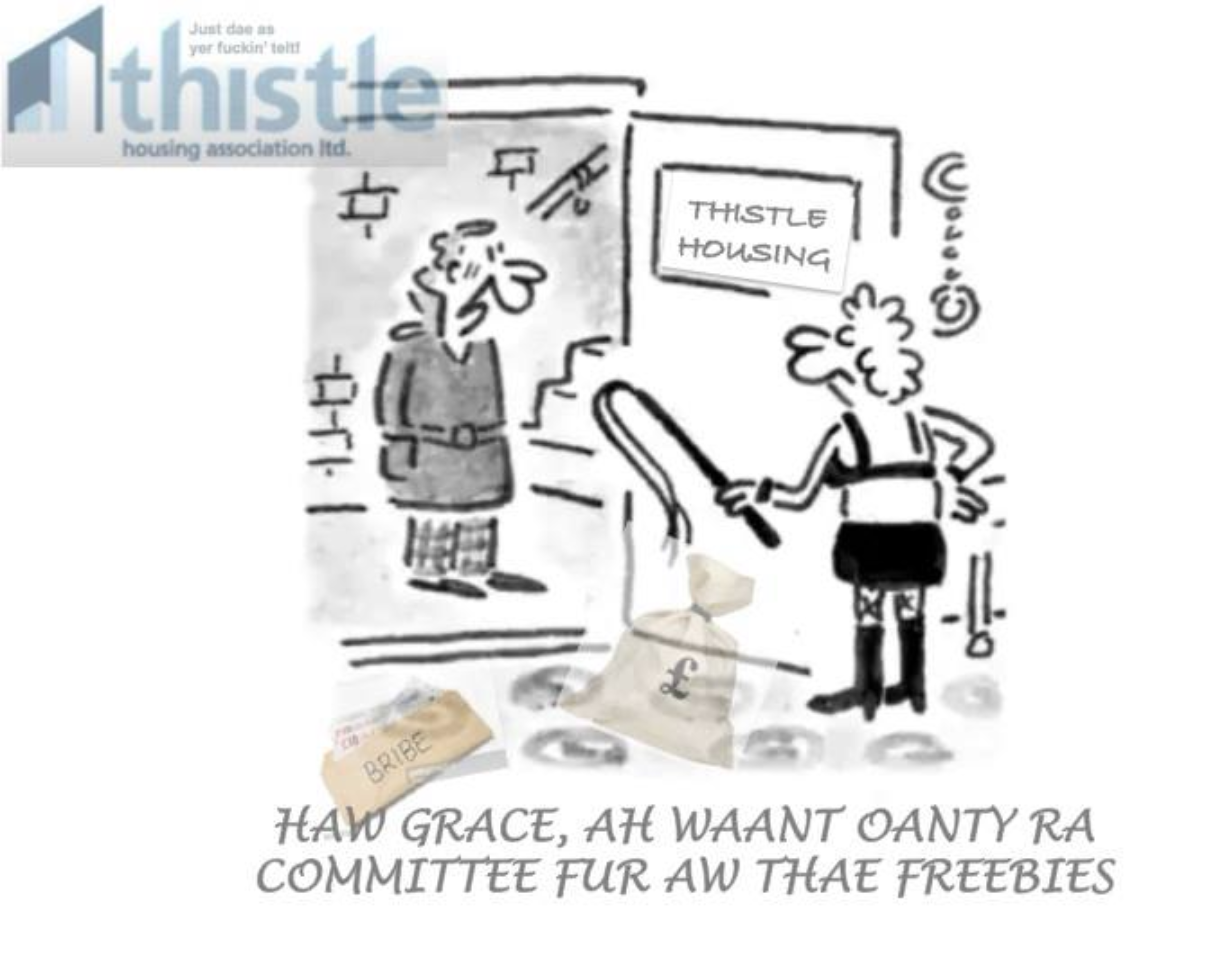

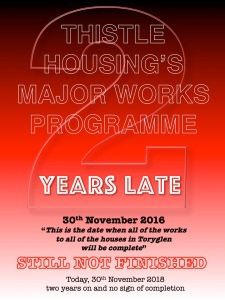
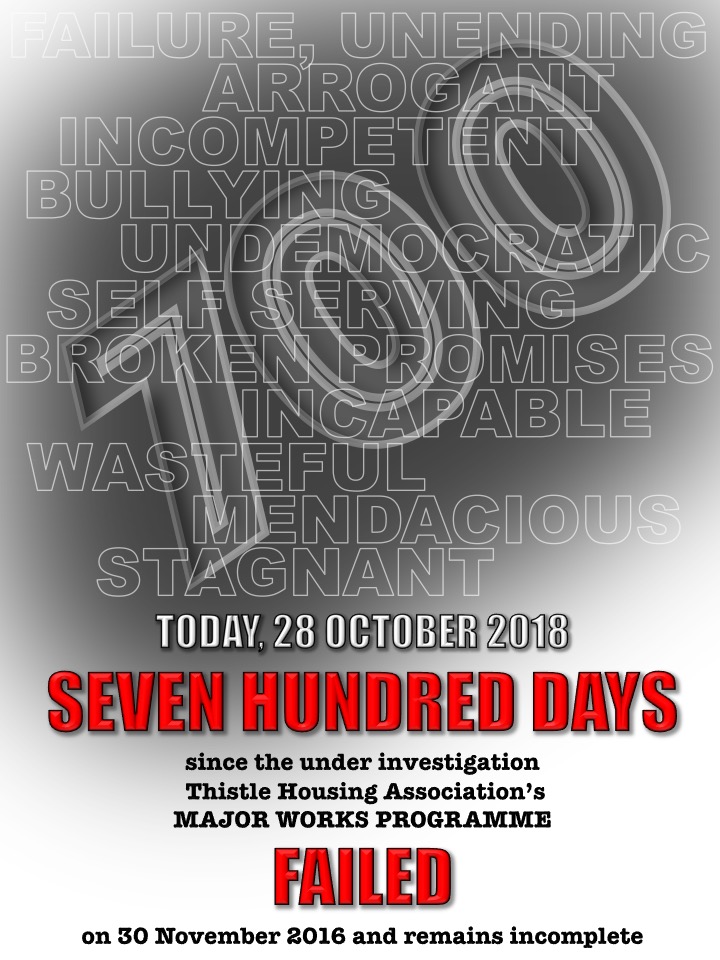
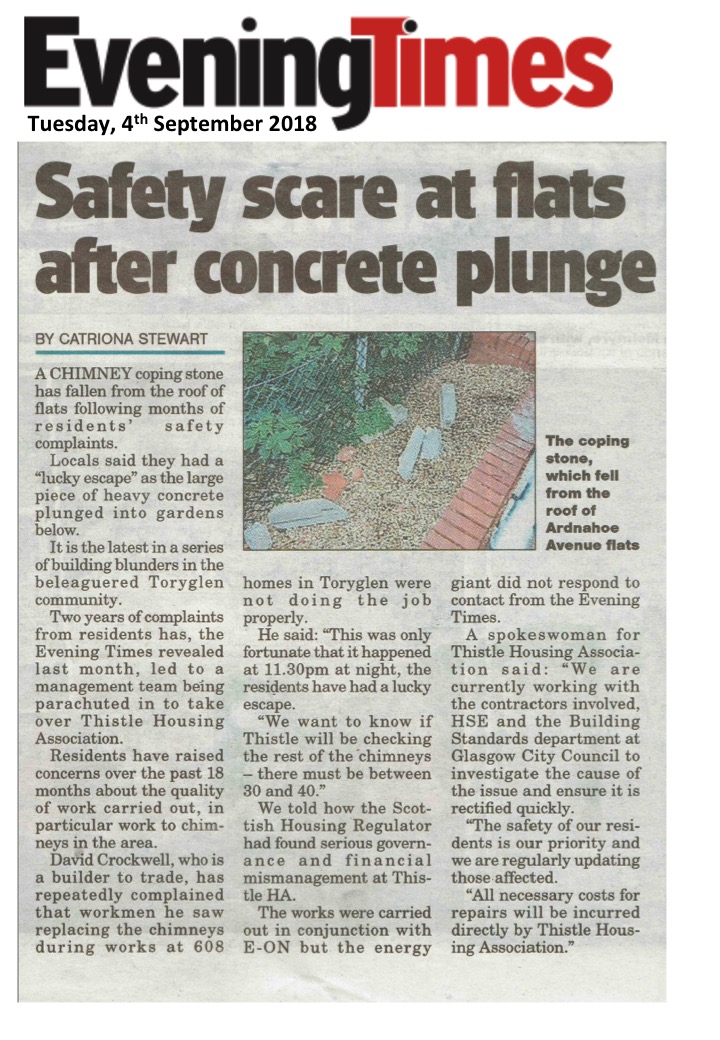
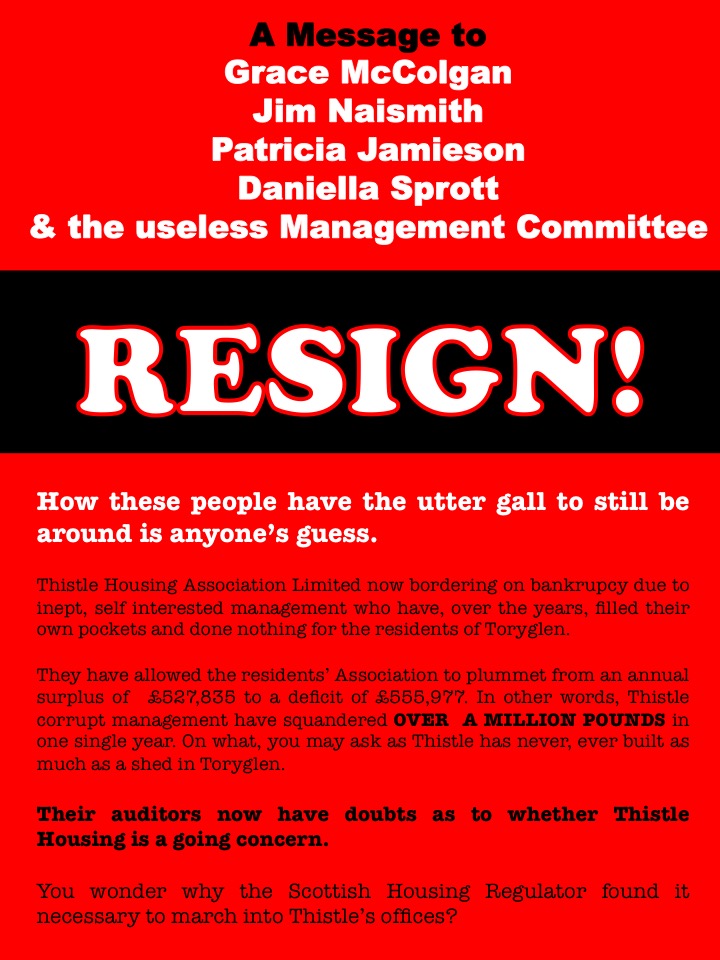


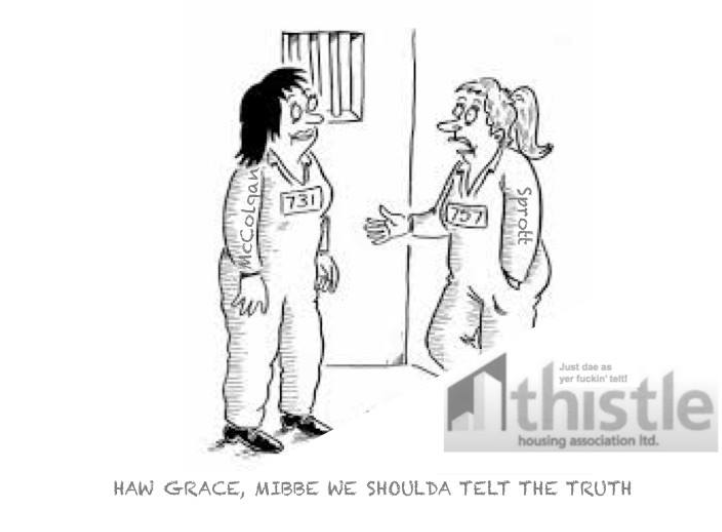
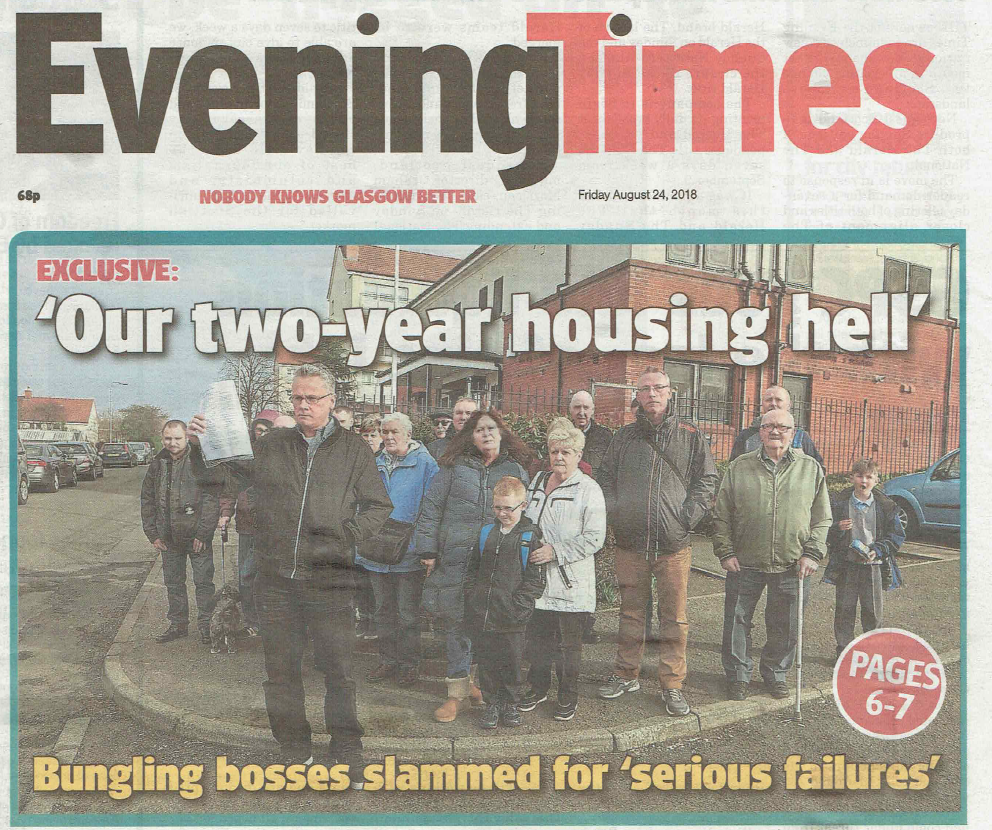

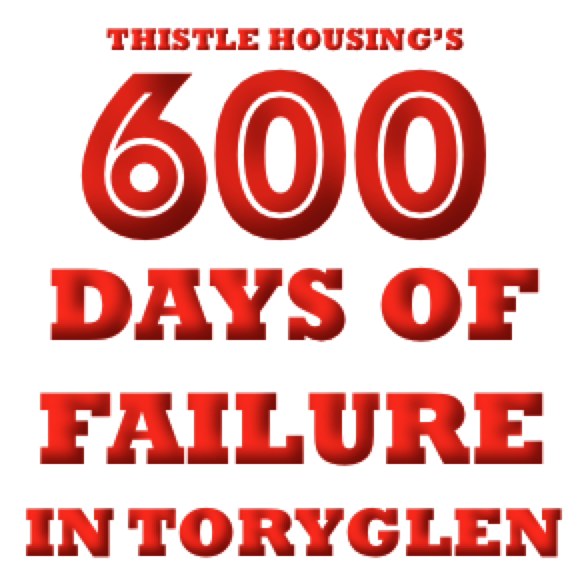


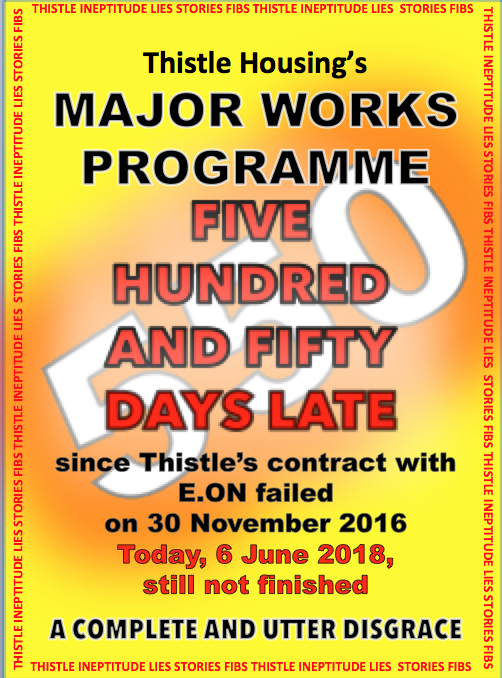
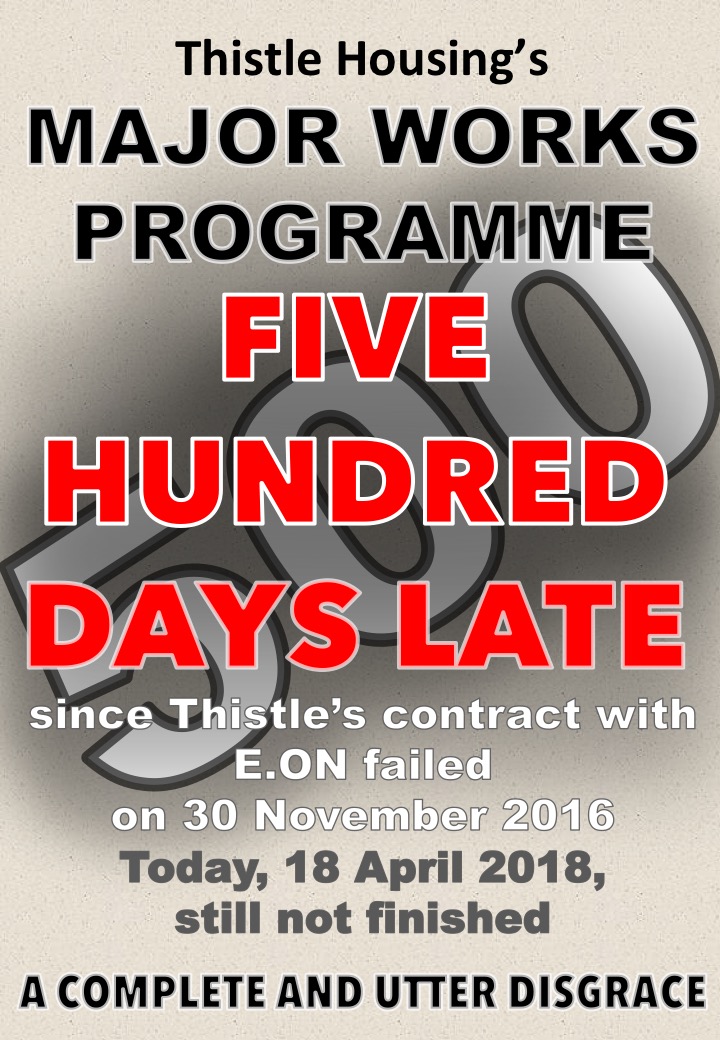
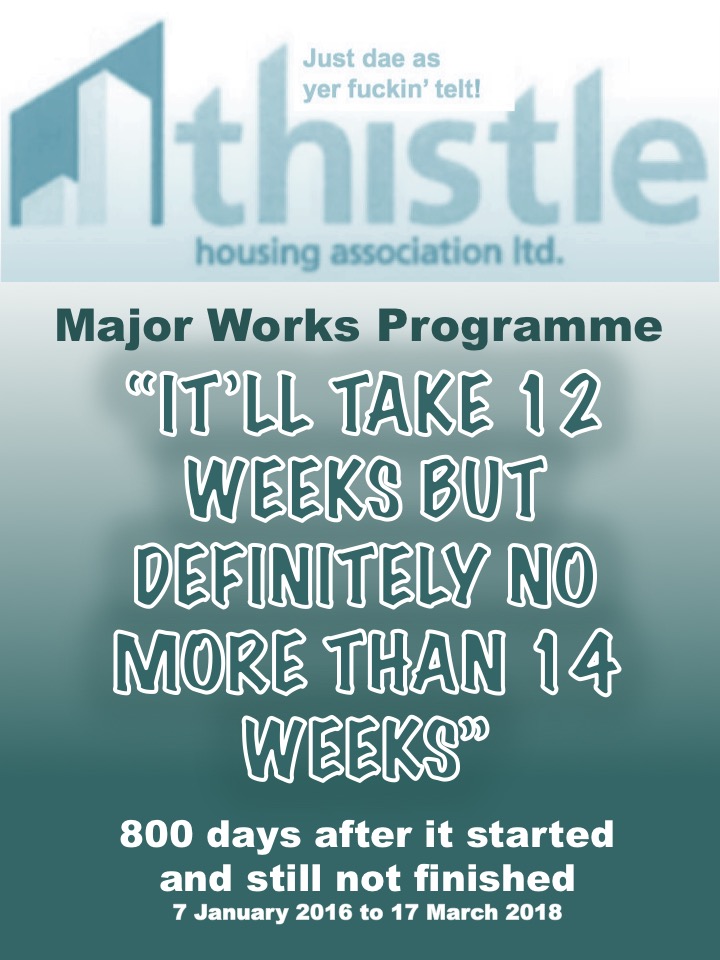


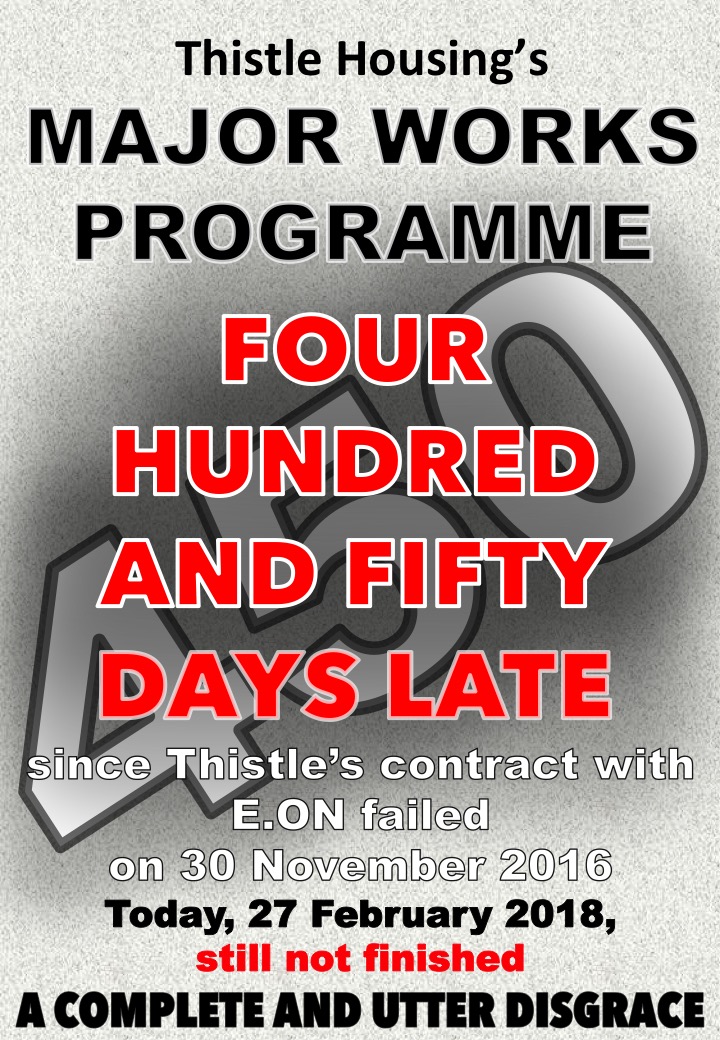




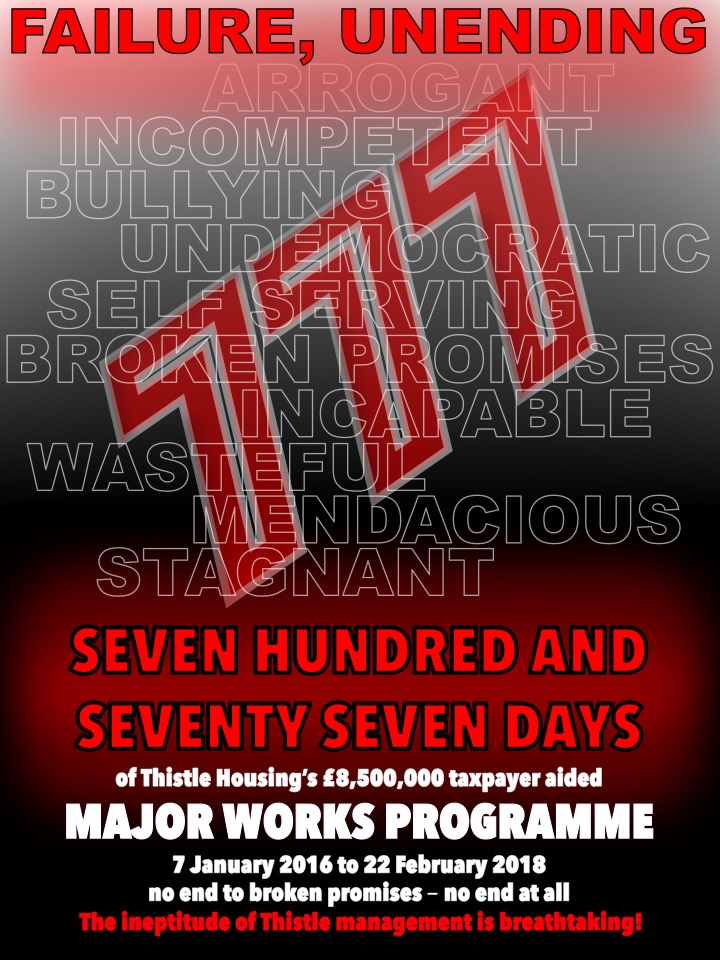
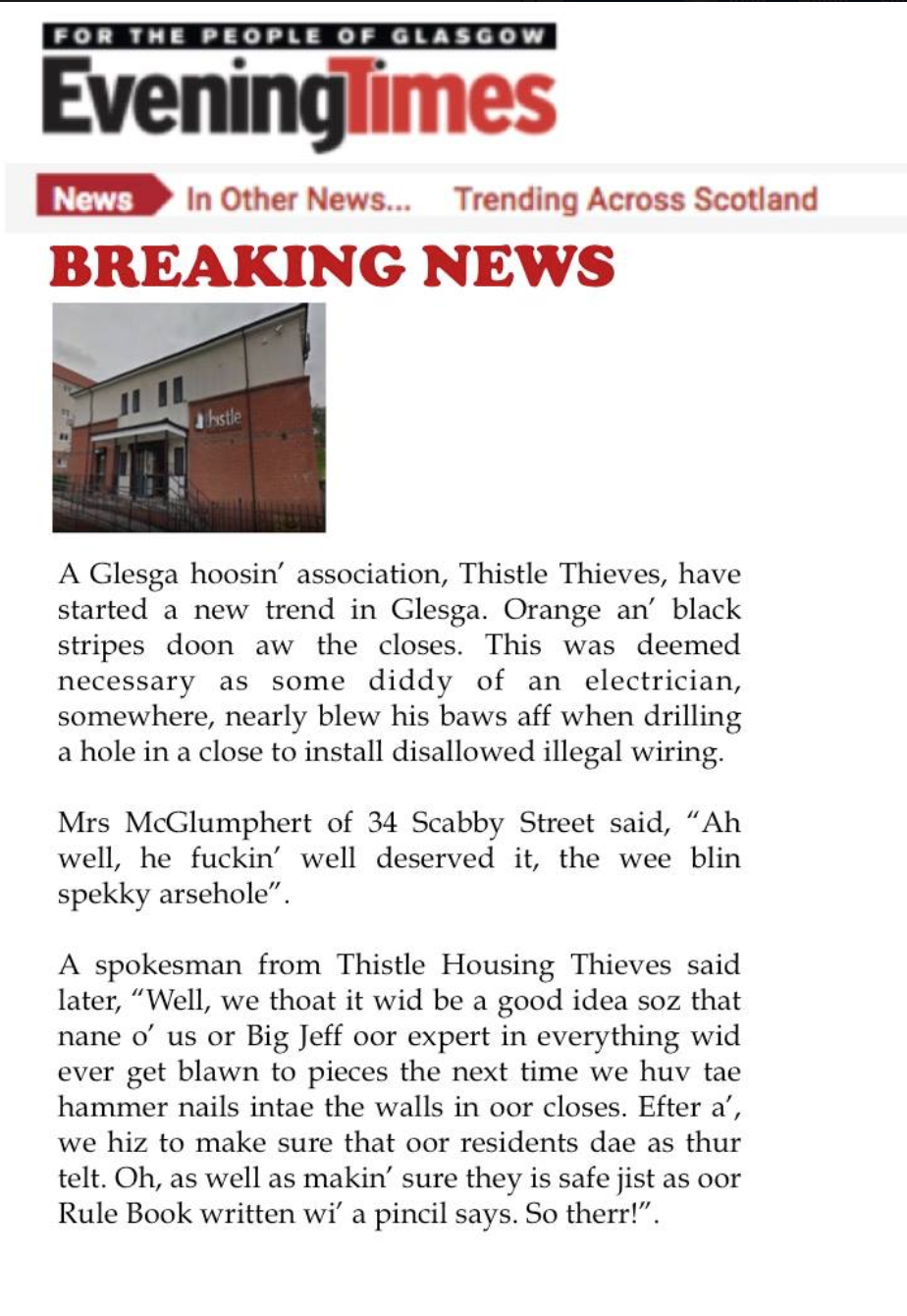
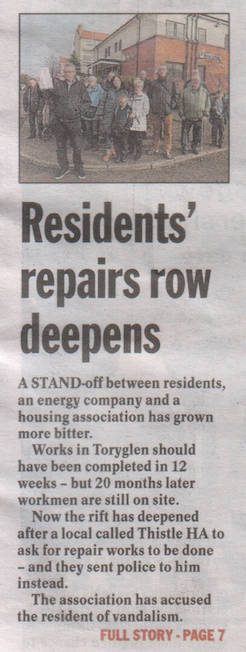
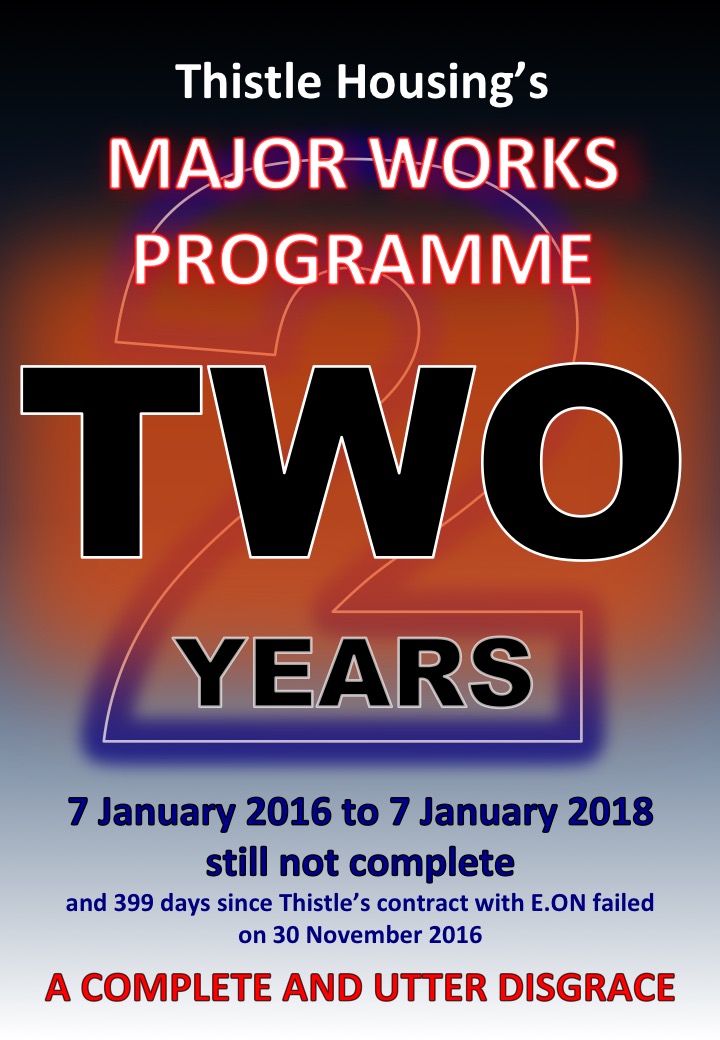

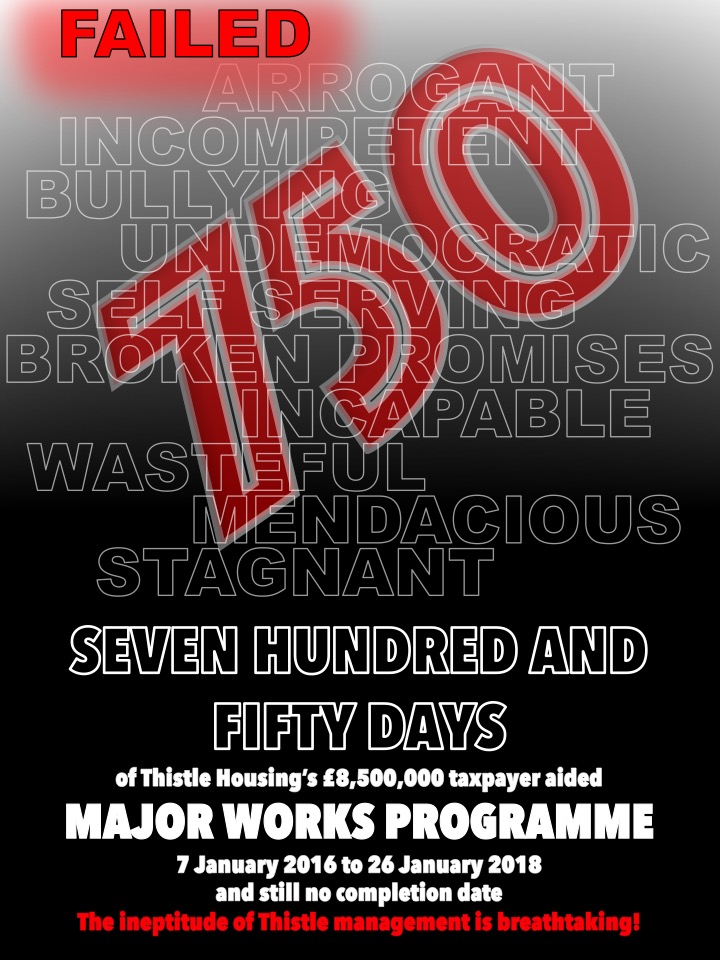






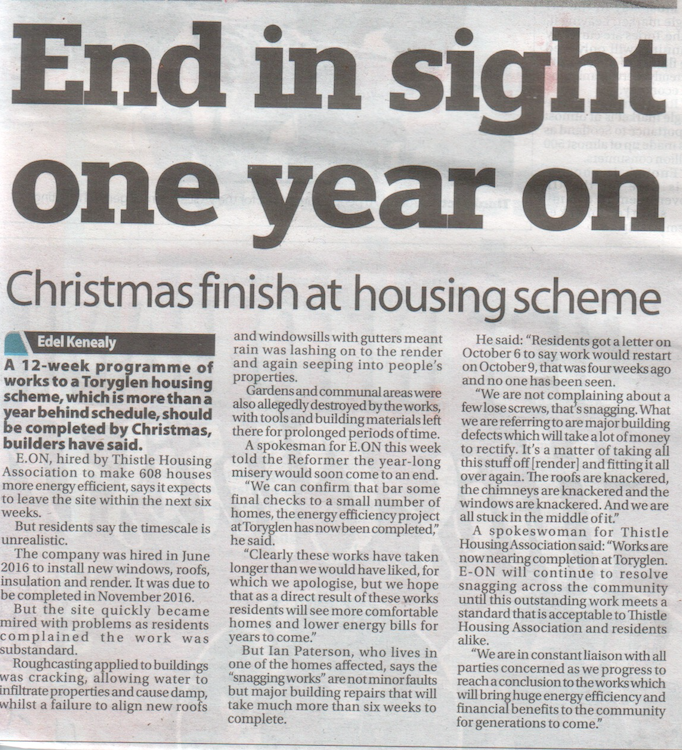

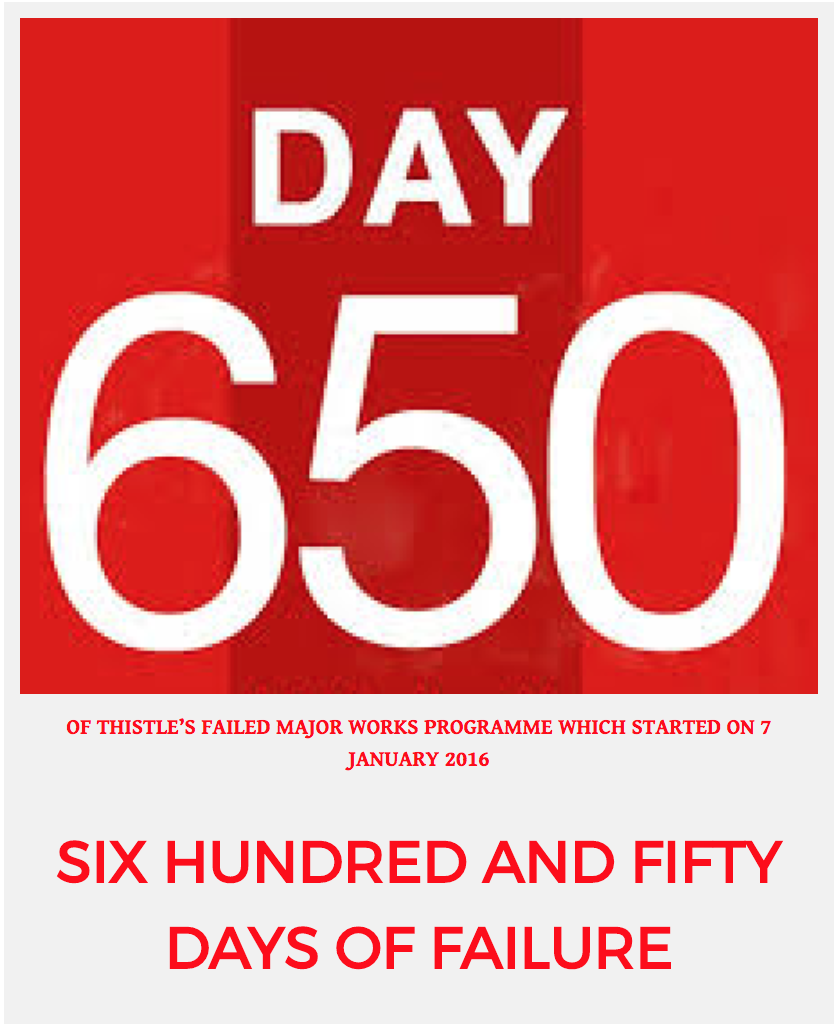
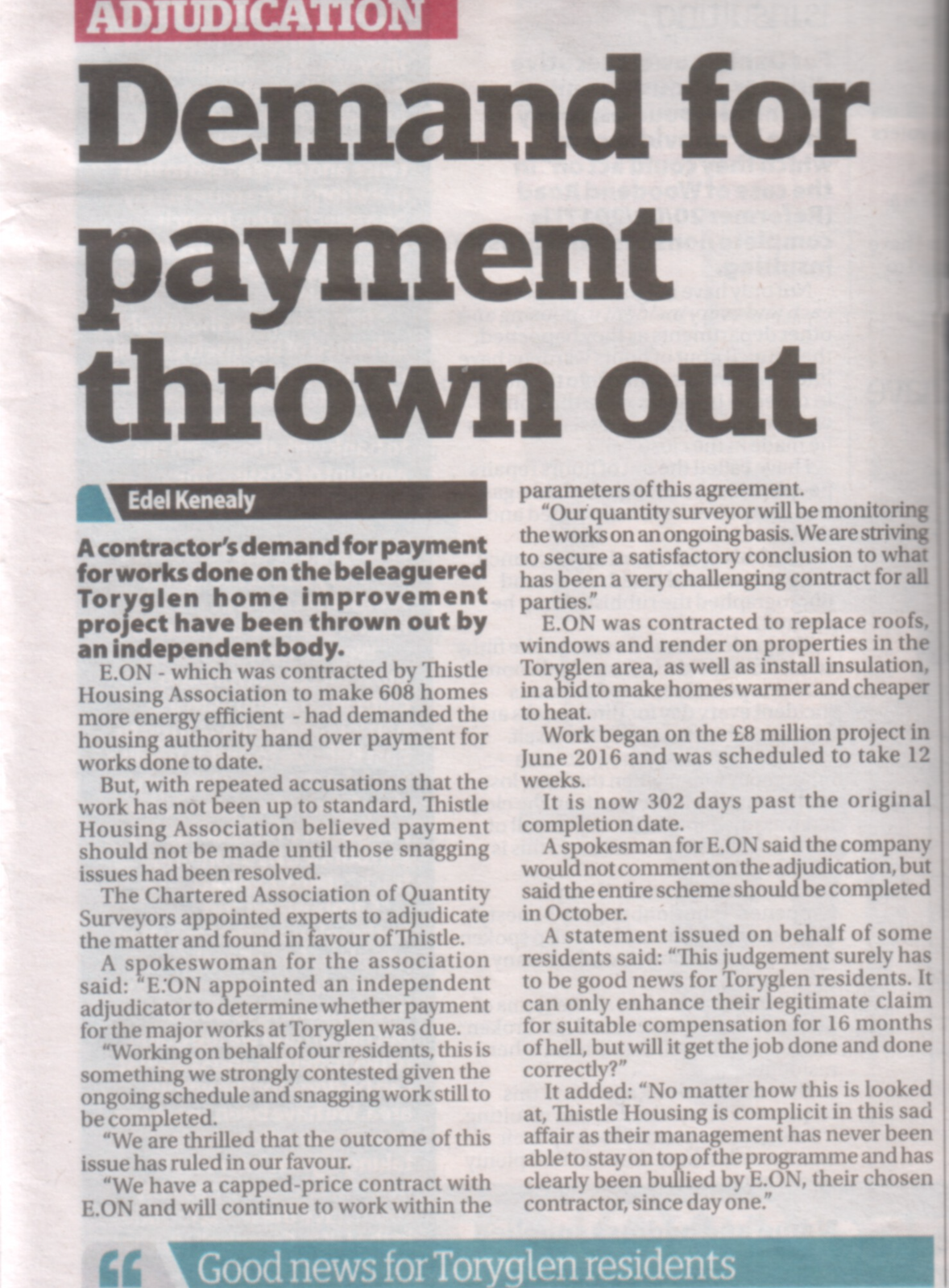




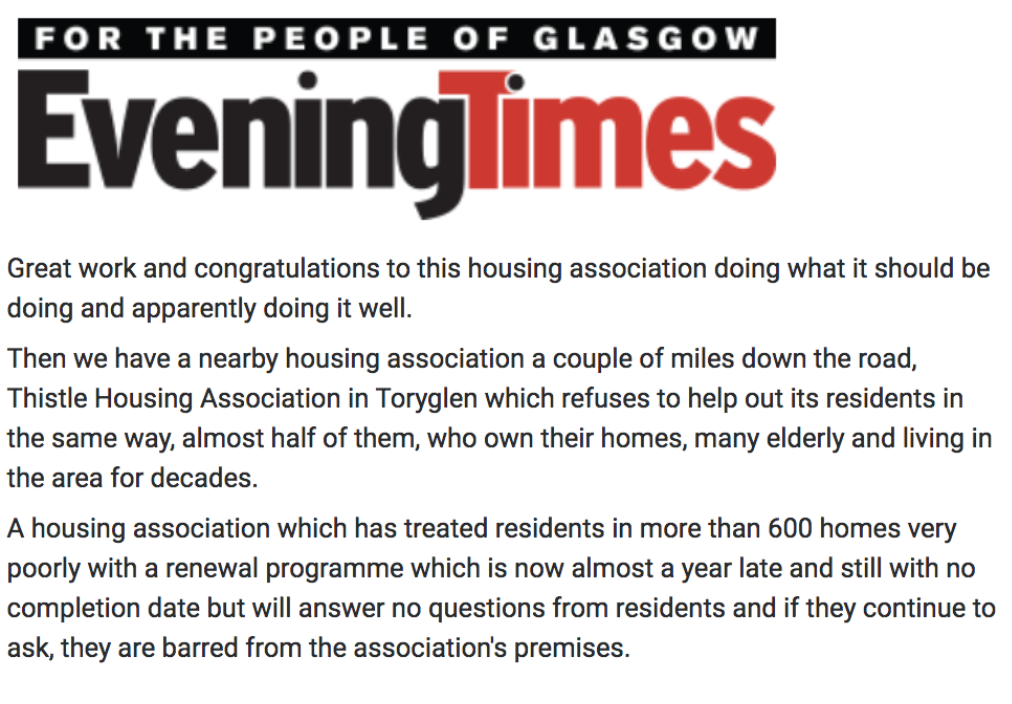
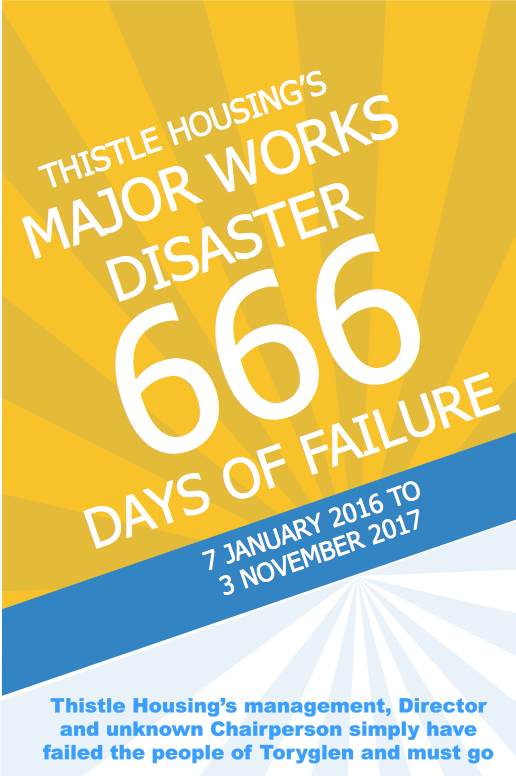
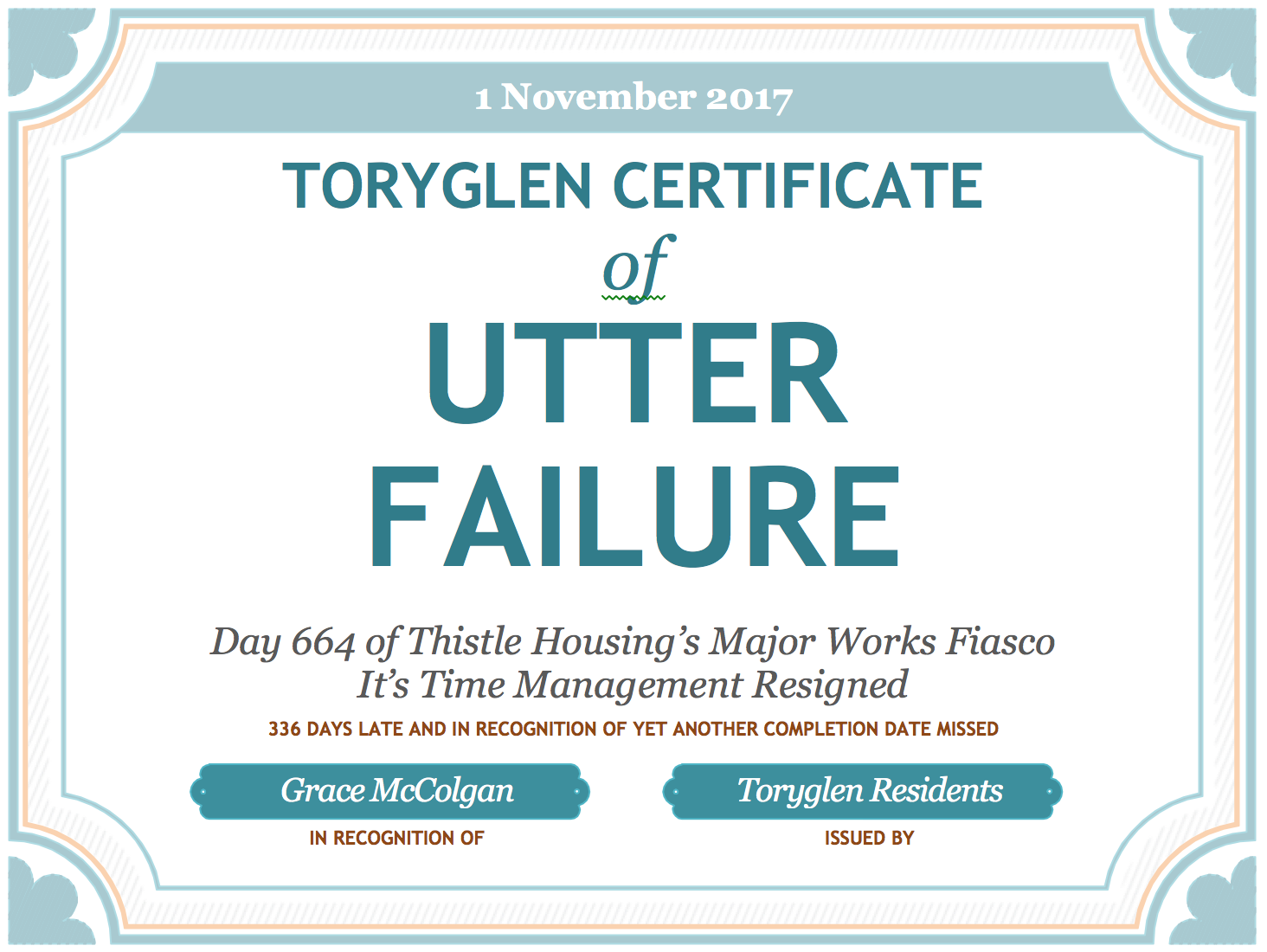
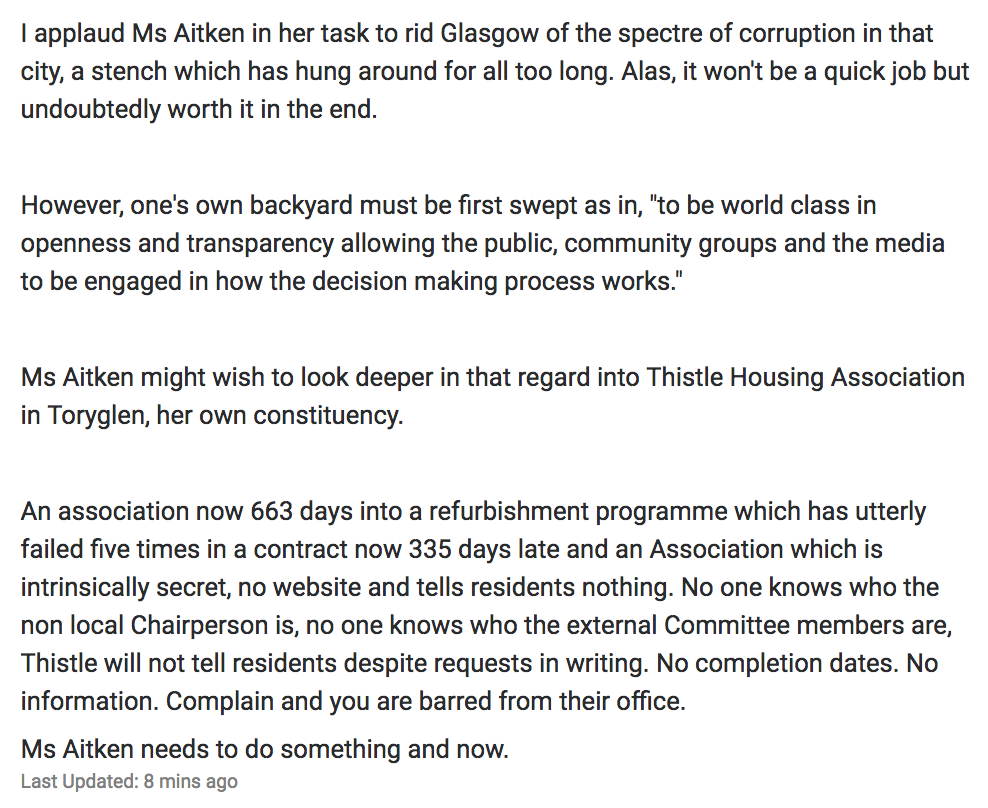
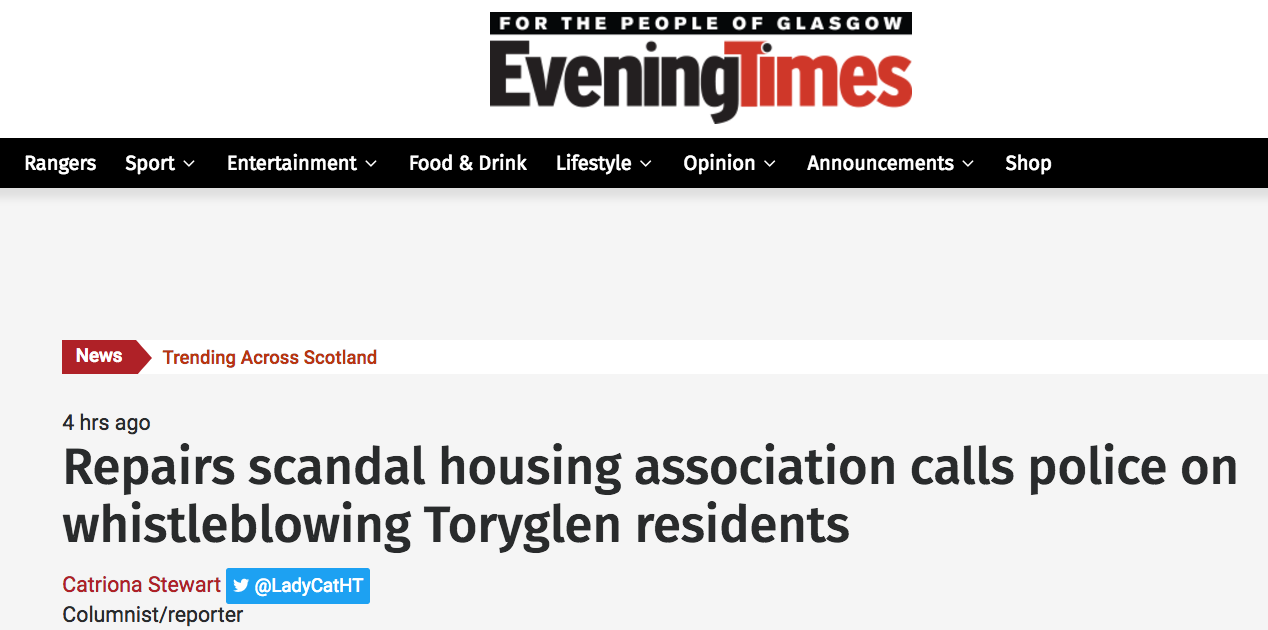




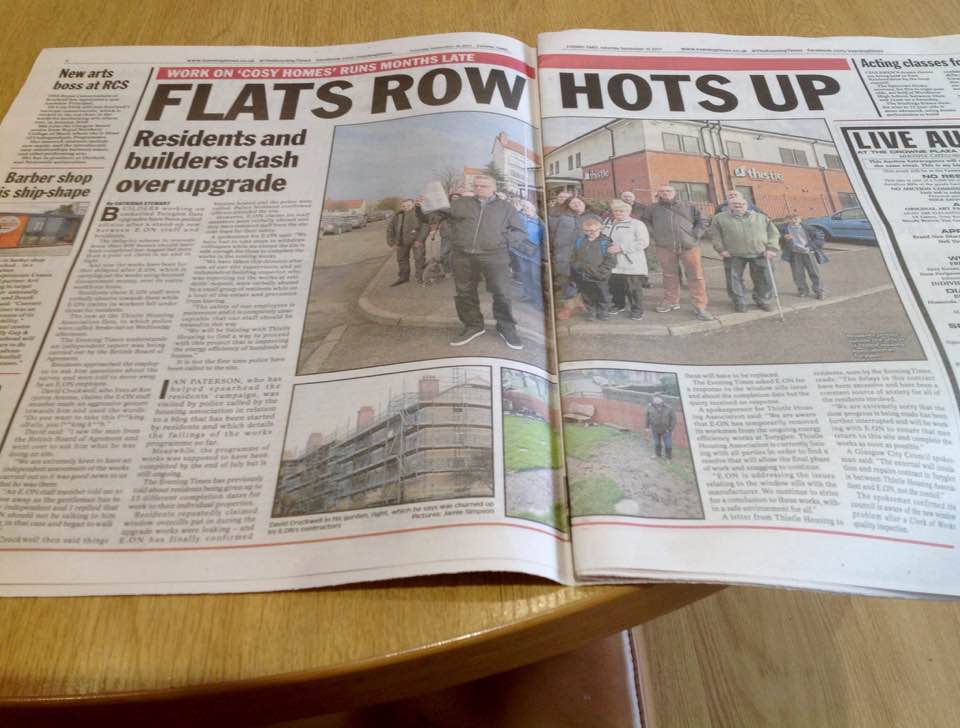
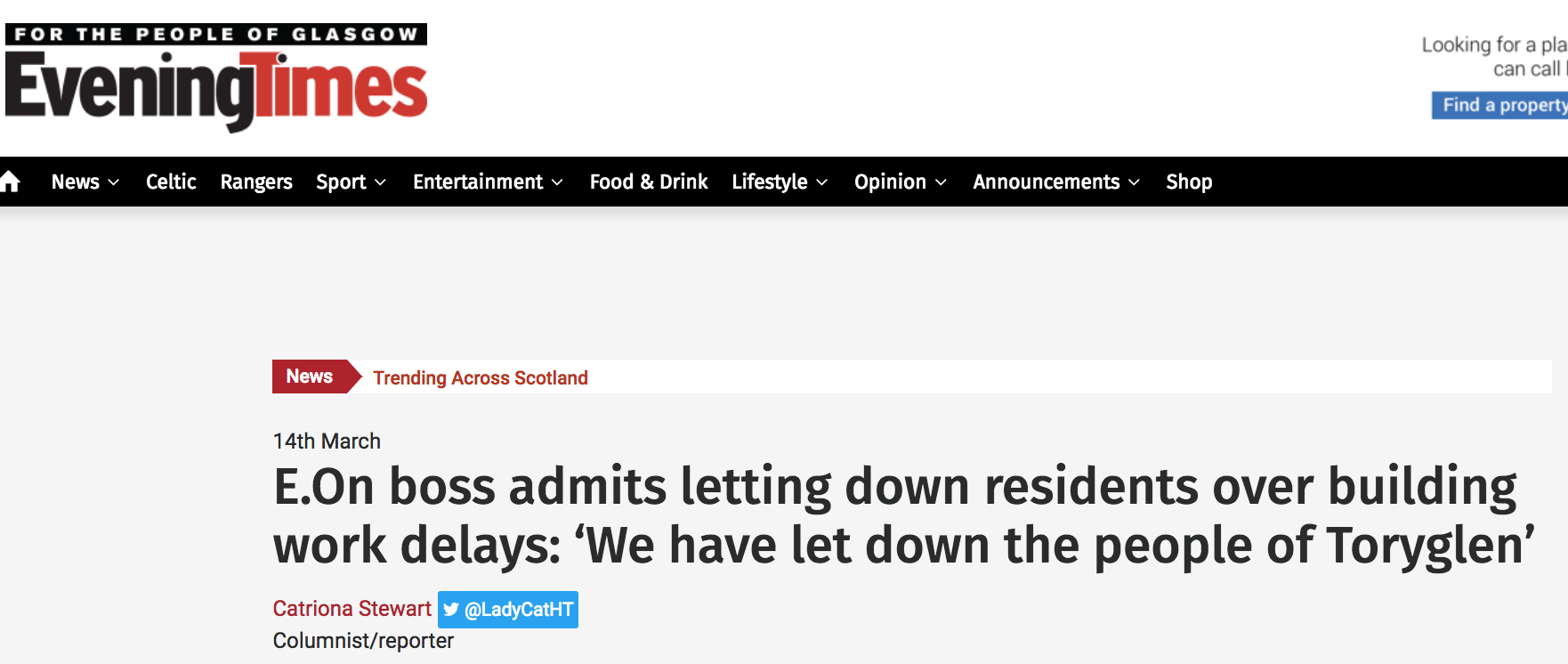

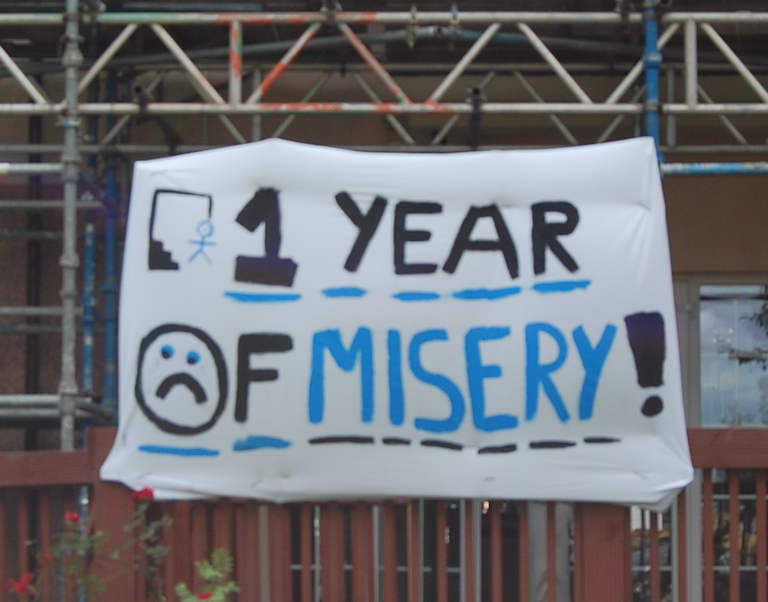

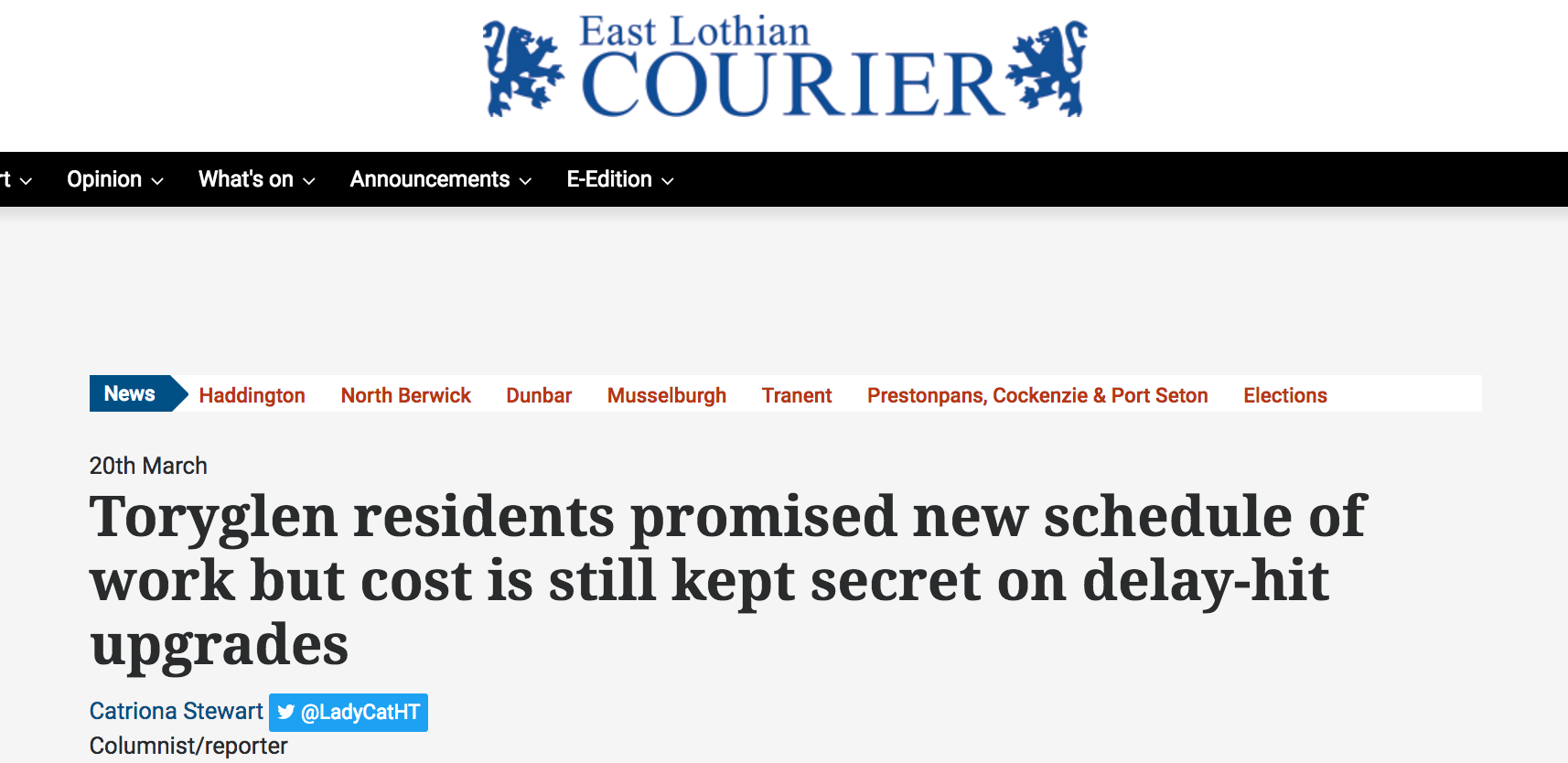
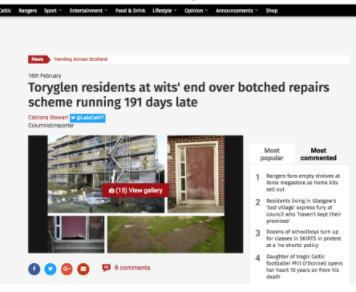
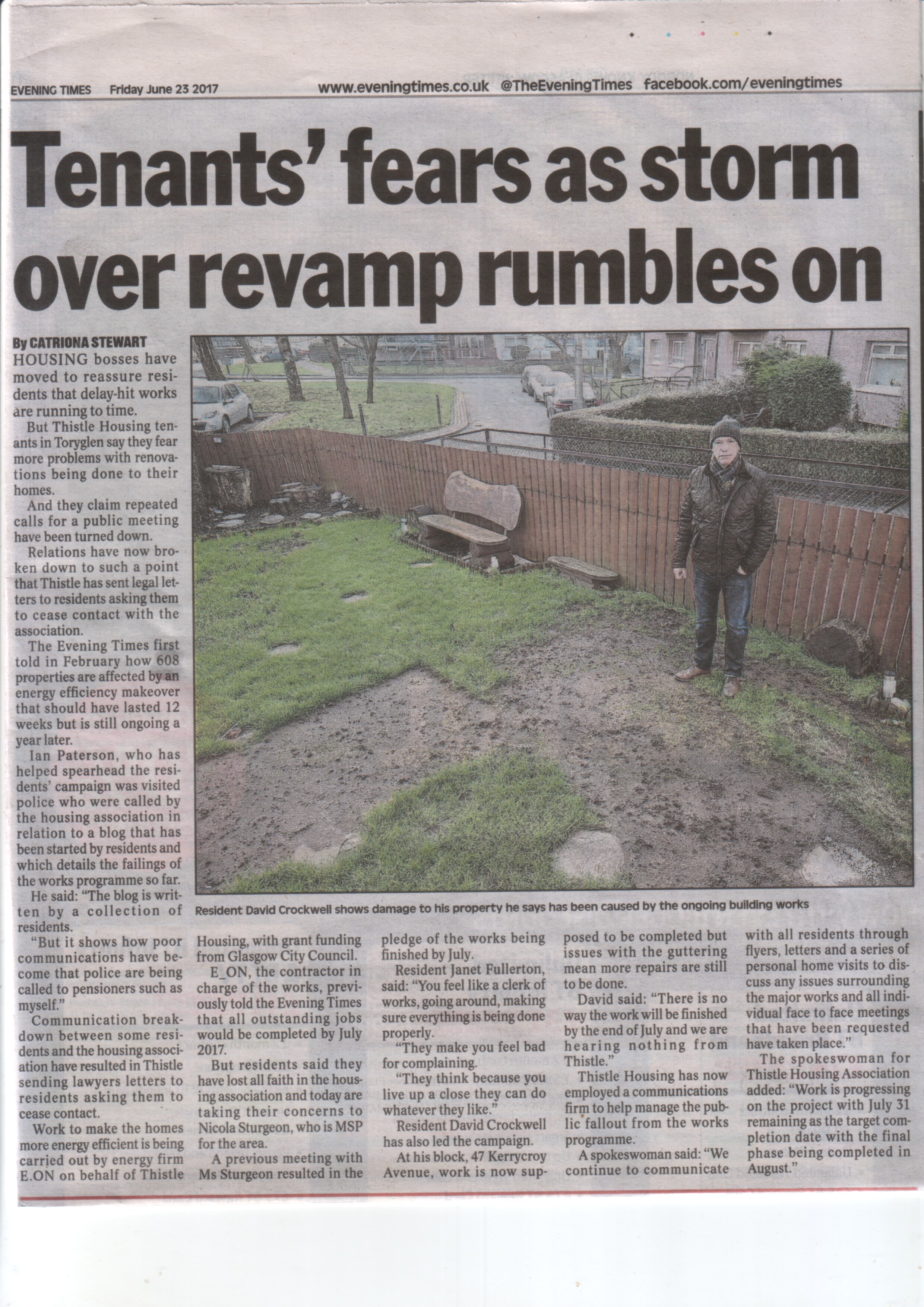

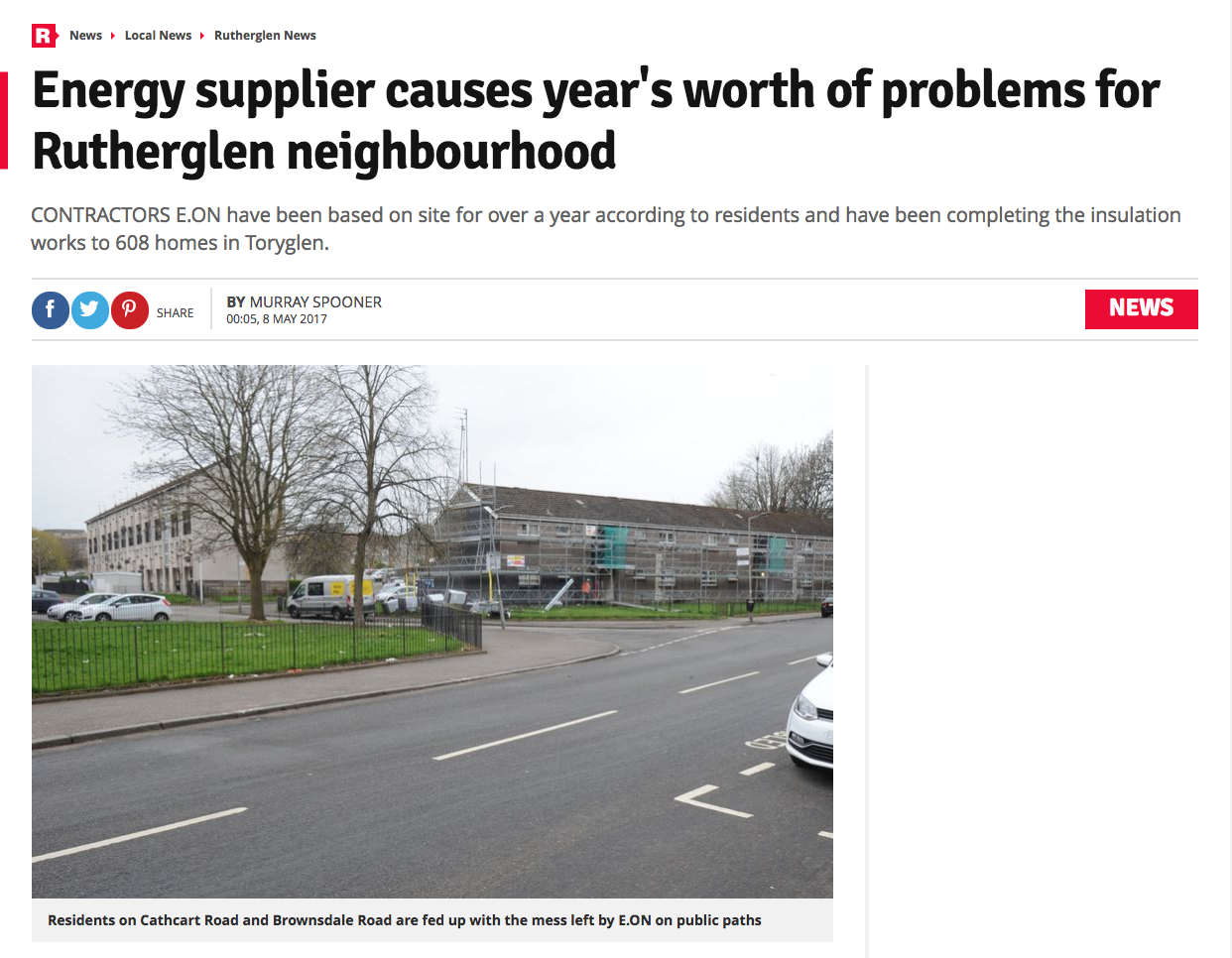
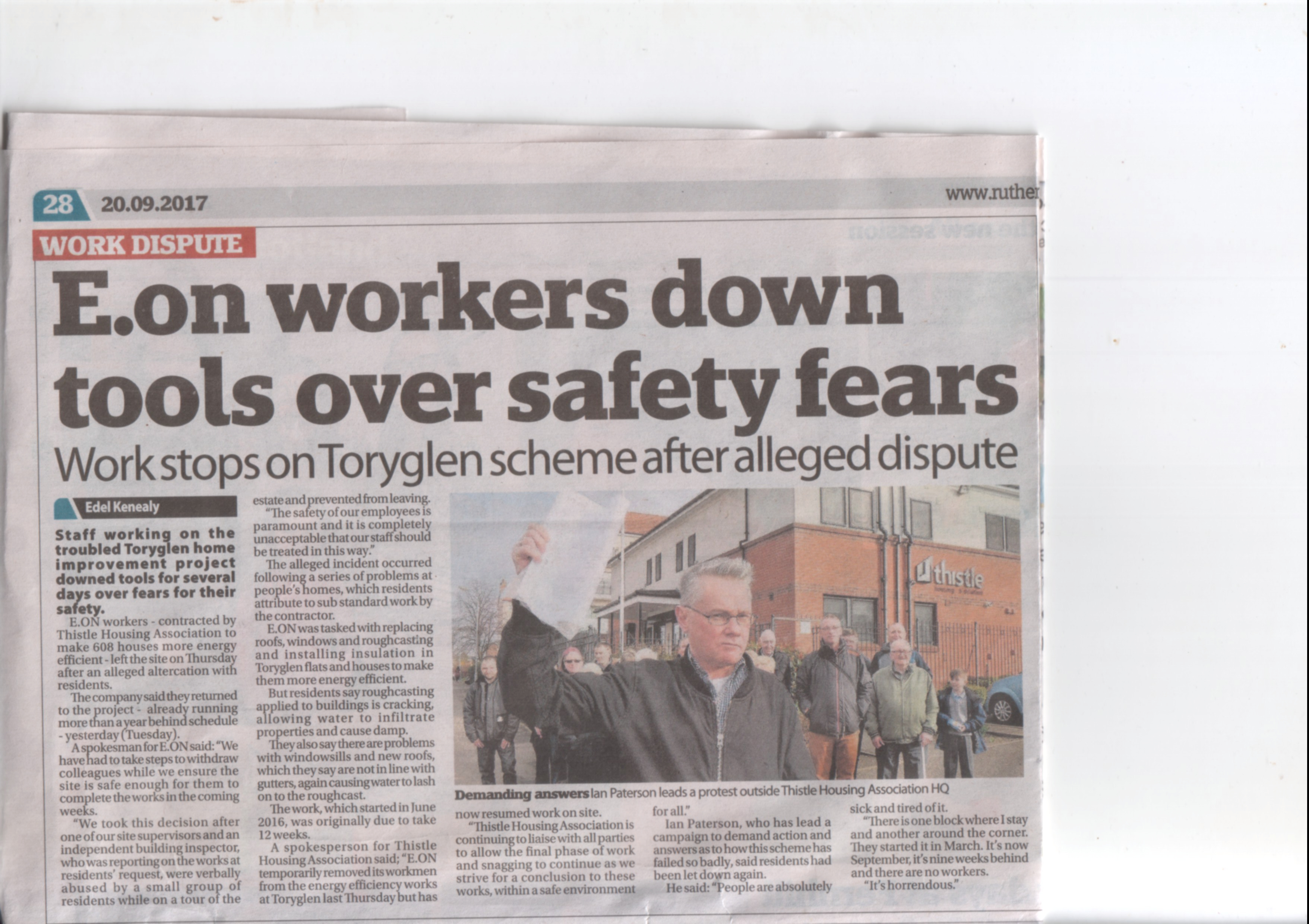
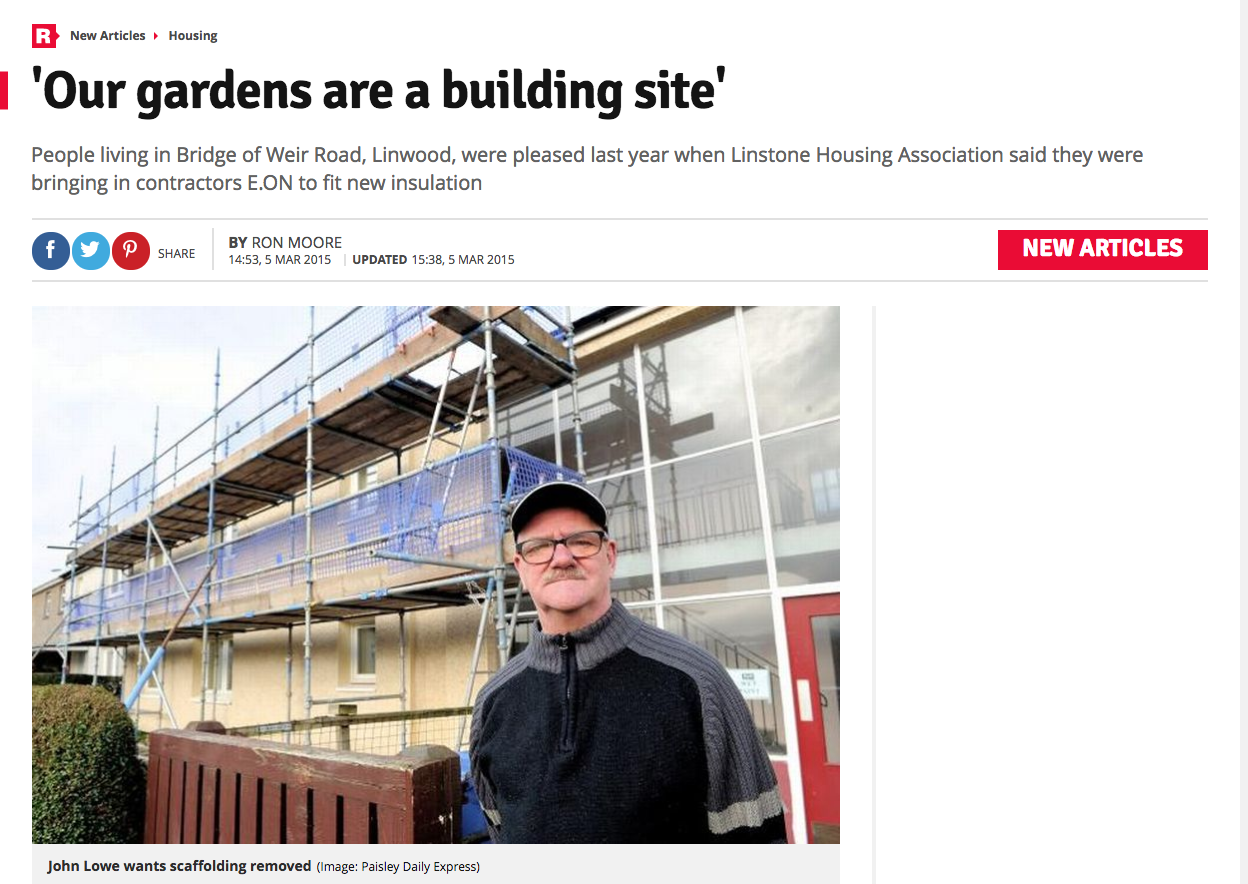


Pingback: 35,000,000 Lies from Thistle Housing | GrabTheThistle: The Toryglen Residents' Blog
Pingback: Scottish Housing Regulator Releases Report on the Corrupt Thistle Housing Association – Residents’ Fears and Actions Vindicated | GrabTheThistle: The Toryglen Residents' Blog